Category: News
-

NASEM Releases Consensus Report on Biosecurity and AI
By understanding the opportunities and risks of AI advances, we can collectively advance science in ways that improve the health of all people.
-
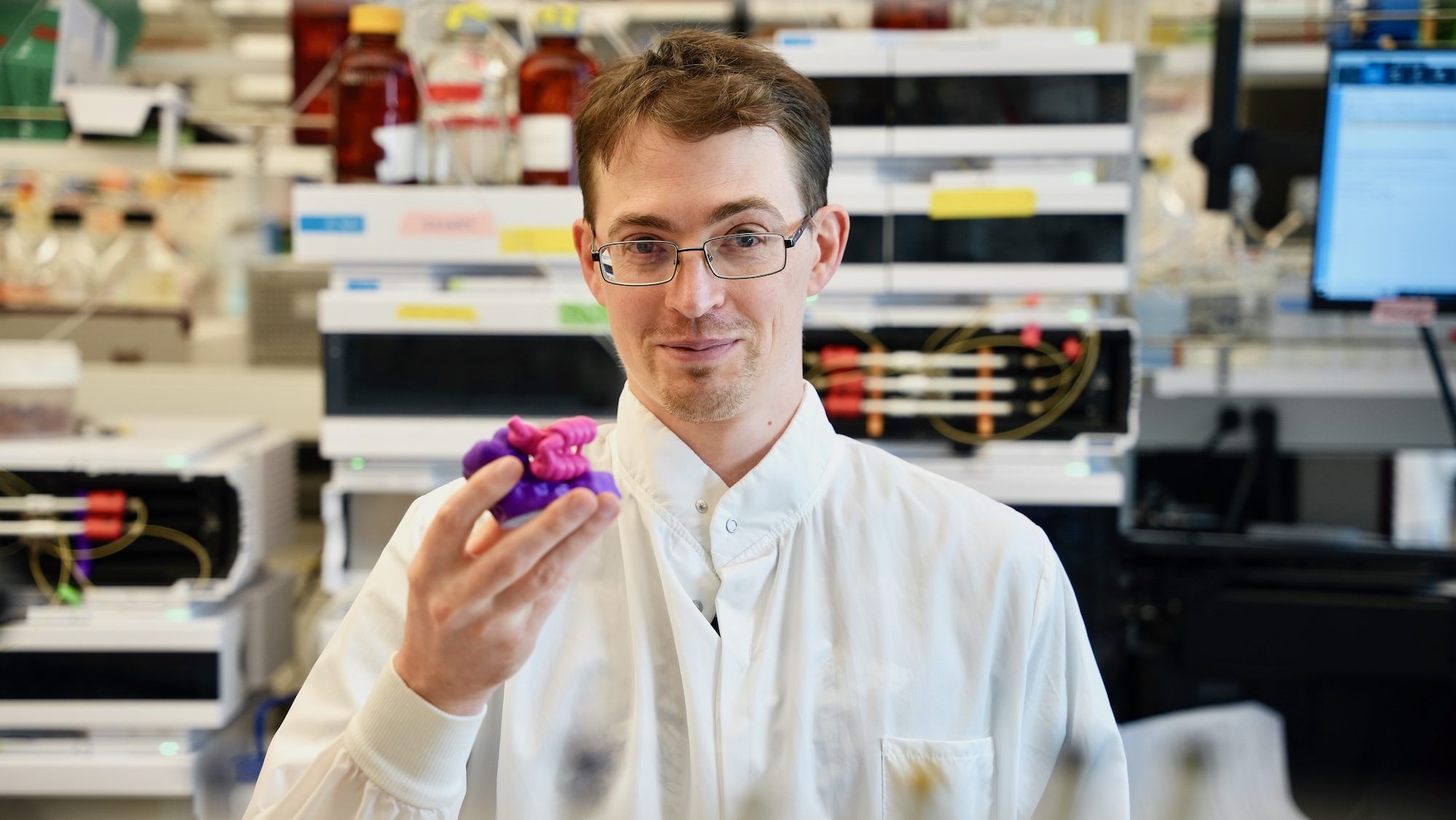
Derrick Hicks wins additional WRF translational funding
Funding will enable further development of Hicks’ minibinder conjugates as an improved option for radiotherapy cancer treatments.
-
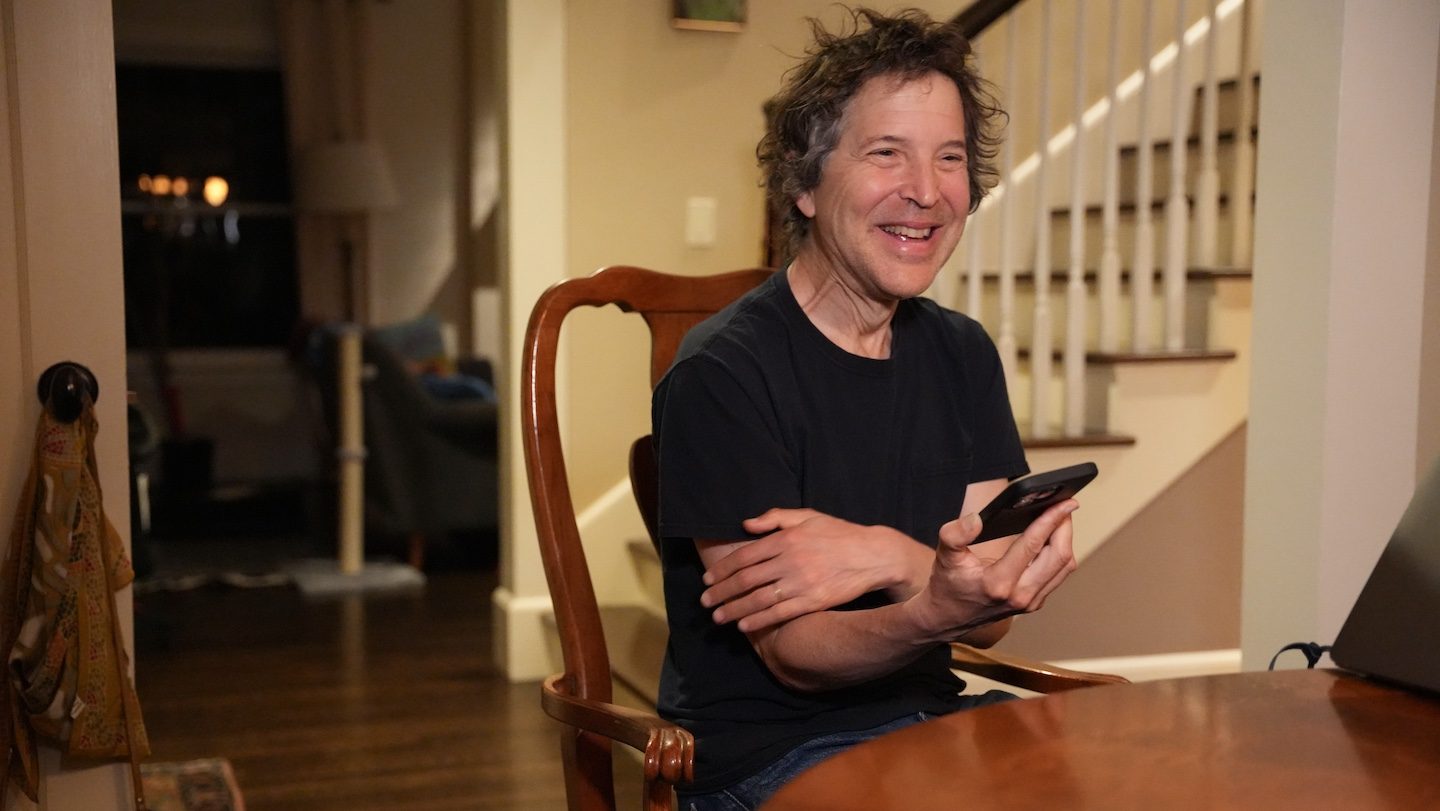
David Baker wins Nobel Prize for protein design
“Baker has learned how to master life’s building blocks and create entirely new proteins.”
-
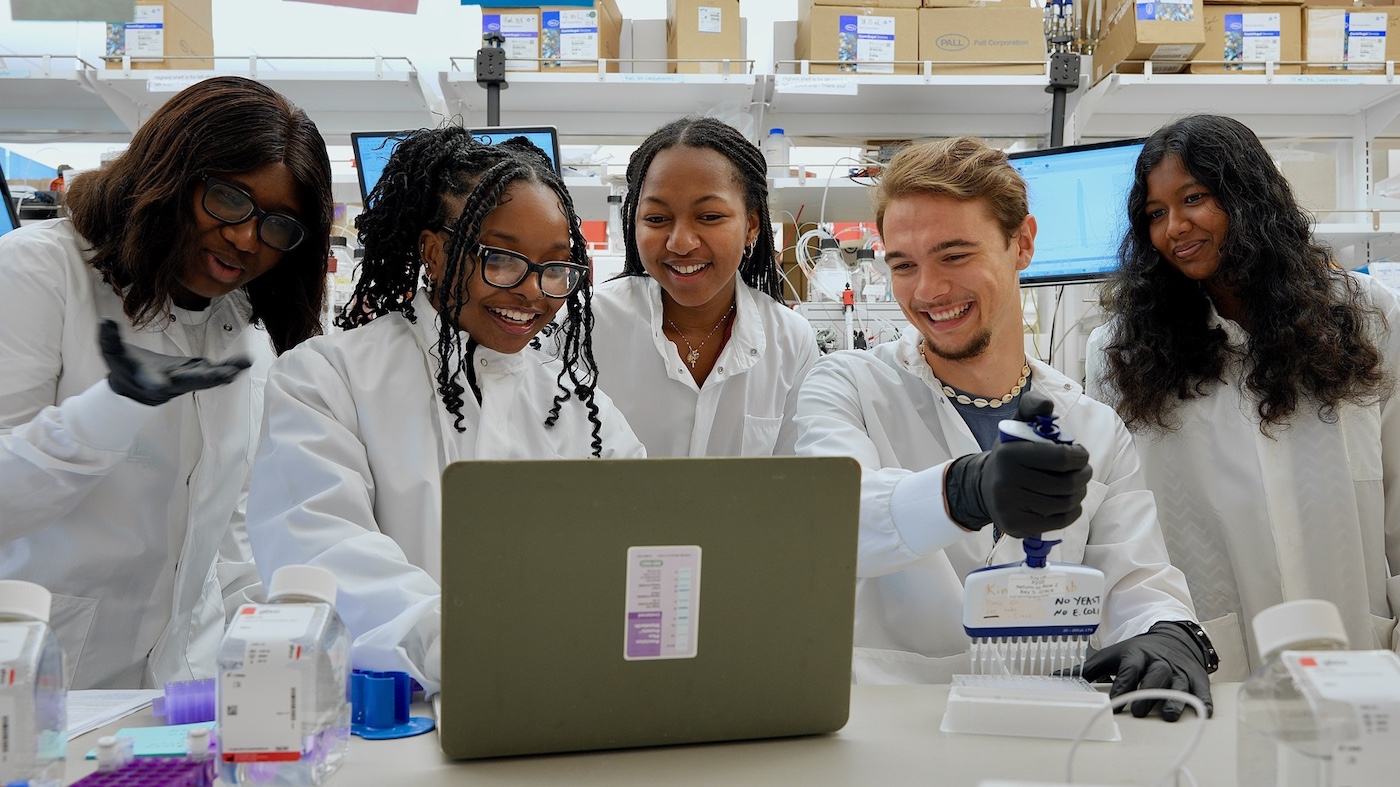
Summer undergraduate researchers design proteins at the IPD
“This is a place where a coffee chat can teach you more than a dozen papers.”
-

Introducing the International Center for Enzyme Design
We’ve partnered with the Manchester Institute of Biotechnology to transform the landscape of enzyme design.
-

IPD scientists will pilot new National AI Research Resource
NAIRR aims to democratize advanced AI research by providing academics with large-scale computing resources.
-

Undergrads Abby Burtner and Sneha Subramanian are in the Husky 100
Two of our undergraduate researchers — Abby and Sneha — have been recognized by the University of Washington as leaders and innovators. The Husky 100 includes undergraduate, graduate, and professional students who have founded startups, created artwork, served as mentors, conducted research, and advocated for social justice. In honor of their many contributions, each is eligible…
-
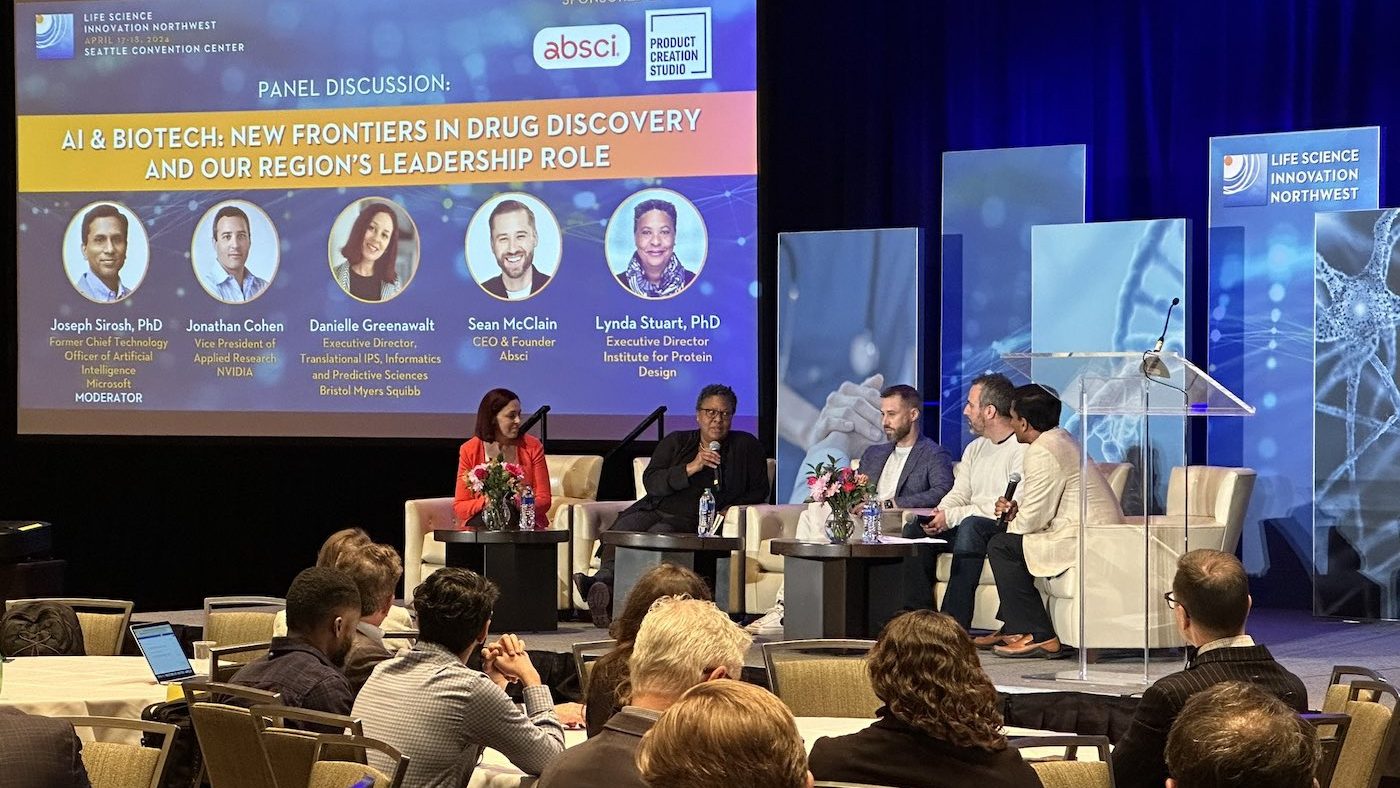
Lynda Stuart on open science and biotech hubs
“The Pacific Northwest has the compute, it has the biotech, but it also has a kind of culture of collaboration and sharing that is not present in certain other parts of the country.”
-
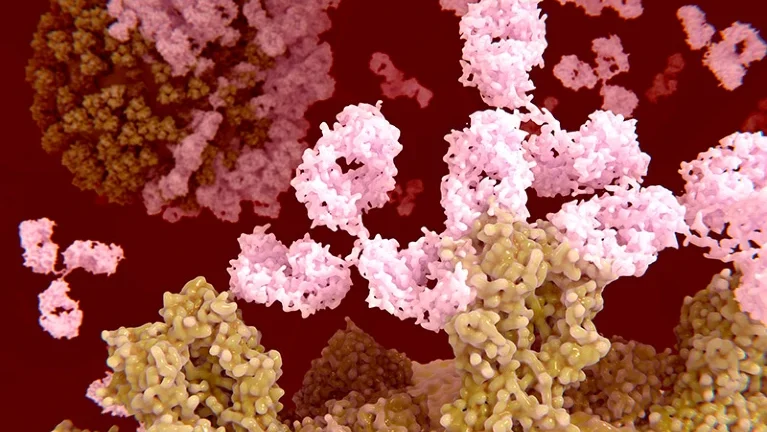
Nature: “‘A landmark moment’: scientists use AI to design antibodies from scratch”
In a proof-of-concept study, we show that RFdiffusion can be tuned to generate antibodies that bind influenza and other targets.
-
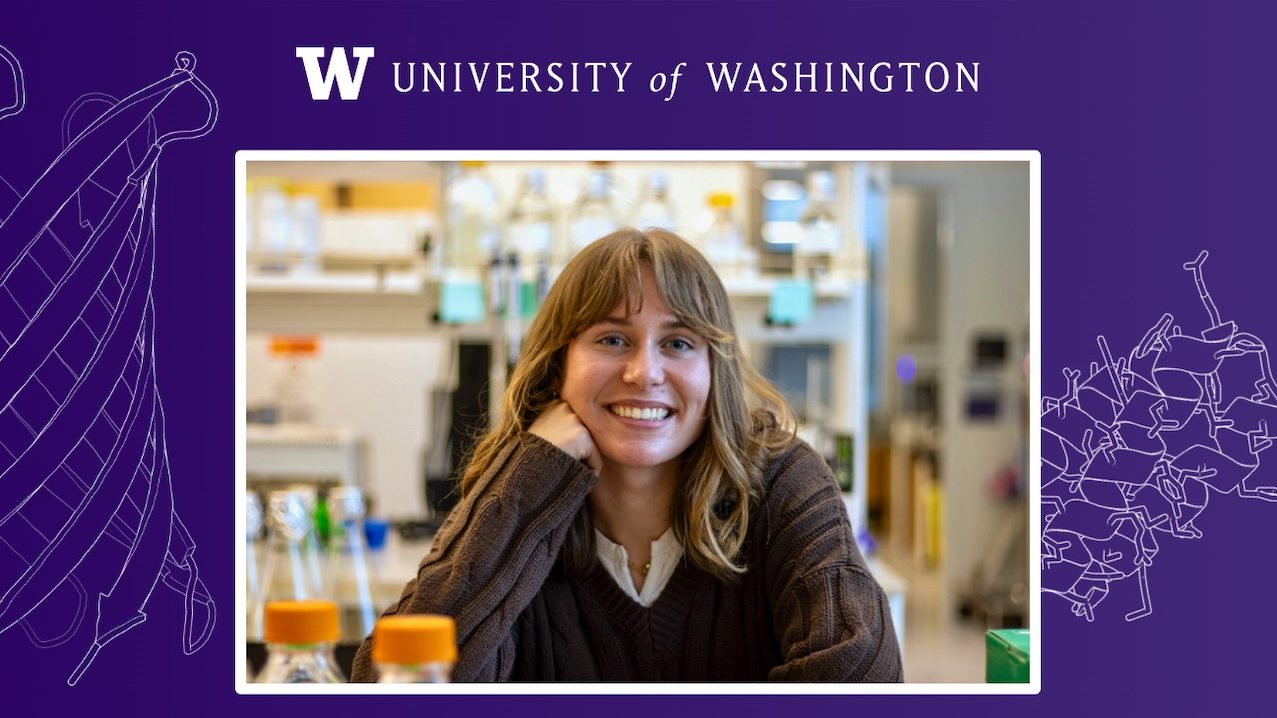
Undergraduate researcher Abigail Burtner receives Churchill Scholarship
Among the most prestigious of all undergraduate honors, the award will cover the full cost of a Master’s degree in pathology at the University of Cambridge.
-

David Baker on AI, open science, and building biotech startups
Our director recently share his thoughts on the impact of AI on life science startups. He spoke with Jenny Cronin, principal at the AI2 Incubator.
-
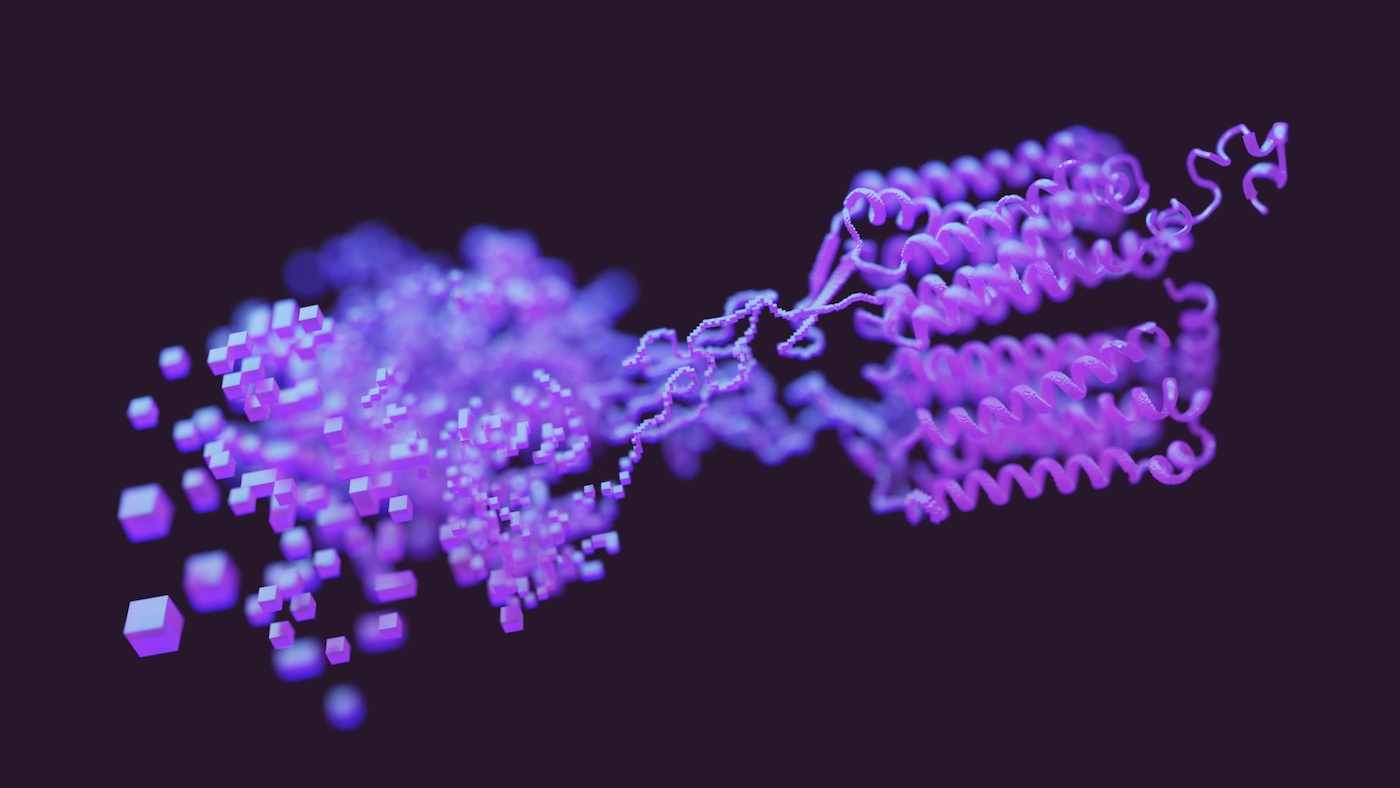
Our commitment to responsible AI development
To maximize the benefits and minimizing risks of AI for protein design, IPD director David Baker and scores of other senior scientists across 20 countries have signed a community agreement with ten actionable commitments and invited others in the field to join them. The Institute for Protein Design is playing a key role in an…
-
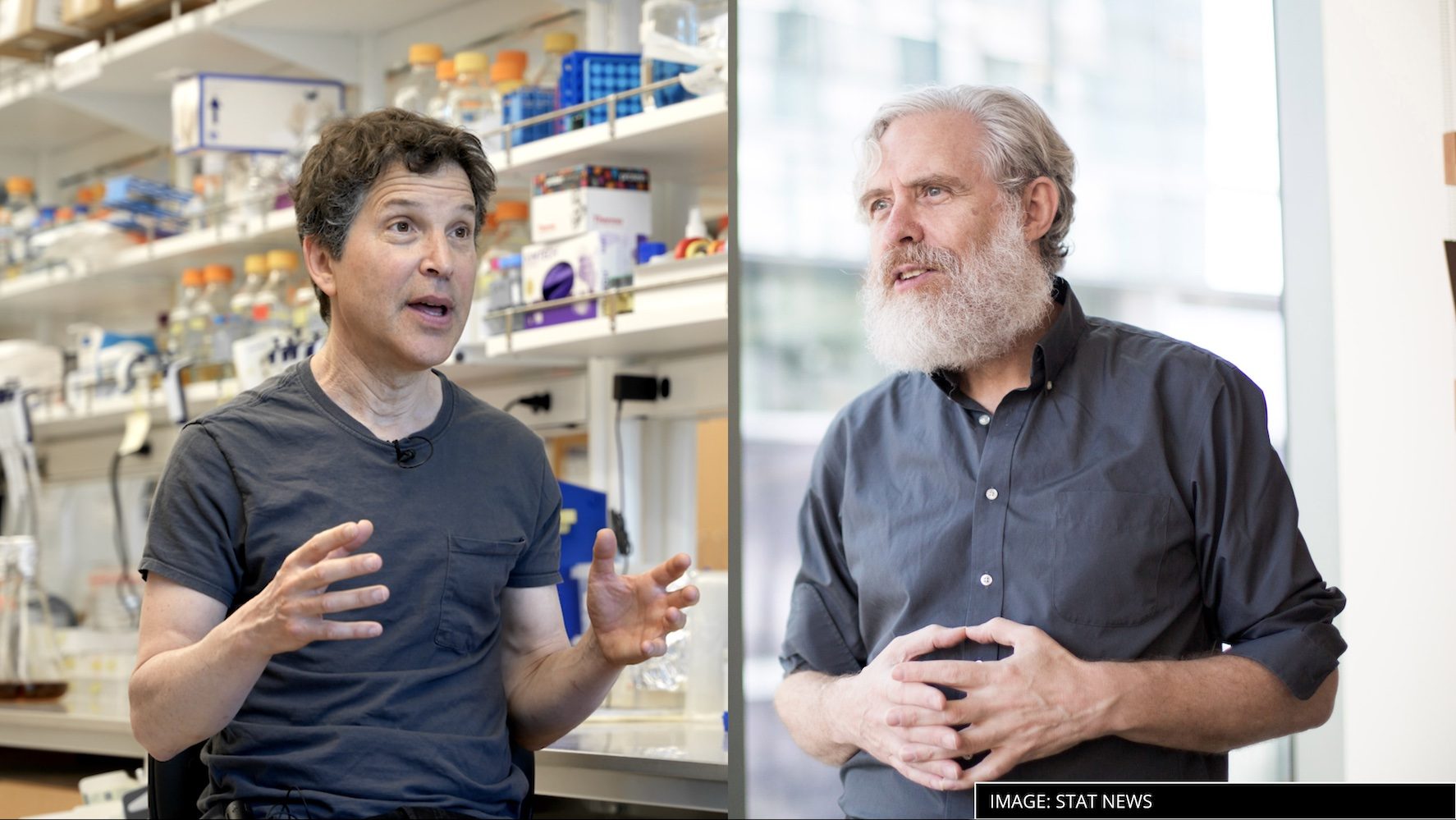
David Baker and George Church call for enhanced controls on DNA synthesis
To maintain biosecurity in the age of AI, all synthesized DNA sequences should be screened and logged, according to two leading scientists. Such records could be decrypted and scrutinized in the event of a novel biological threat, a practice that may help deter the misuse of biodesign software. David Baker and George Church — two…
-
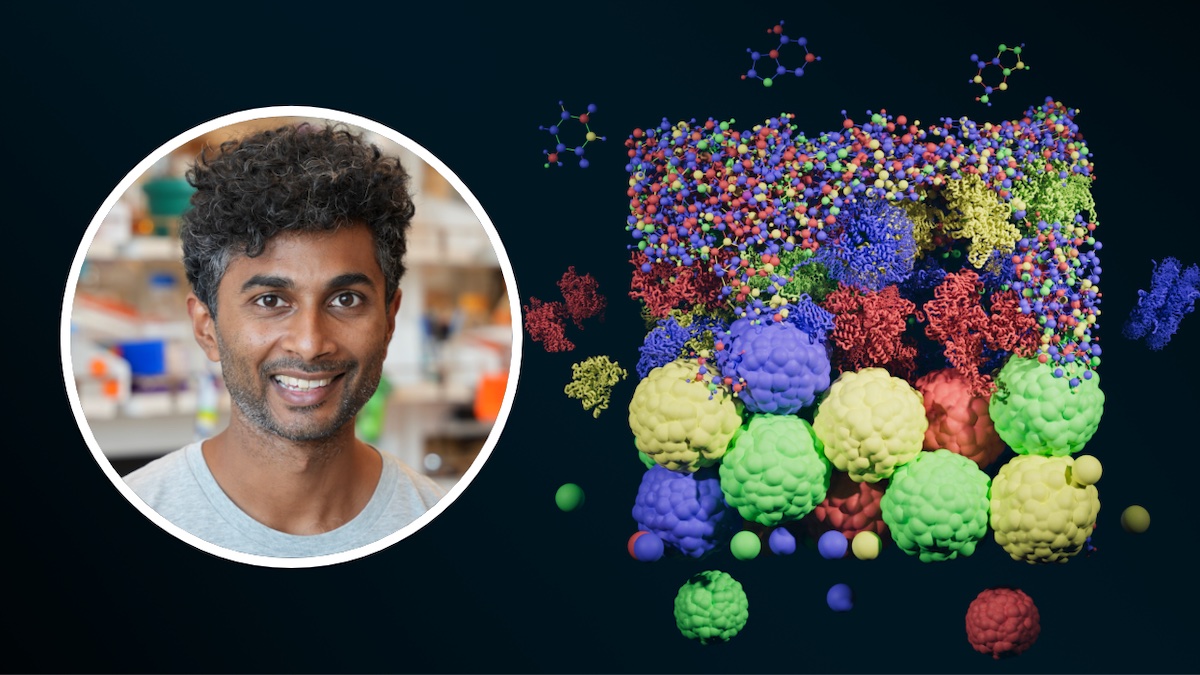
Introducing the Srivatsan Lab
We’re excited to announce a new partnership: the Srivatsan Lab has been named an Affiliate Lab of the Institute for Protein Design. This new lab is at the forefront of leveraging protein design and molecular sequencing to uncover the intricate dance between cells and the genes that guide their function. Under the leadership of Sanjay…
-
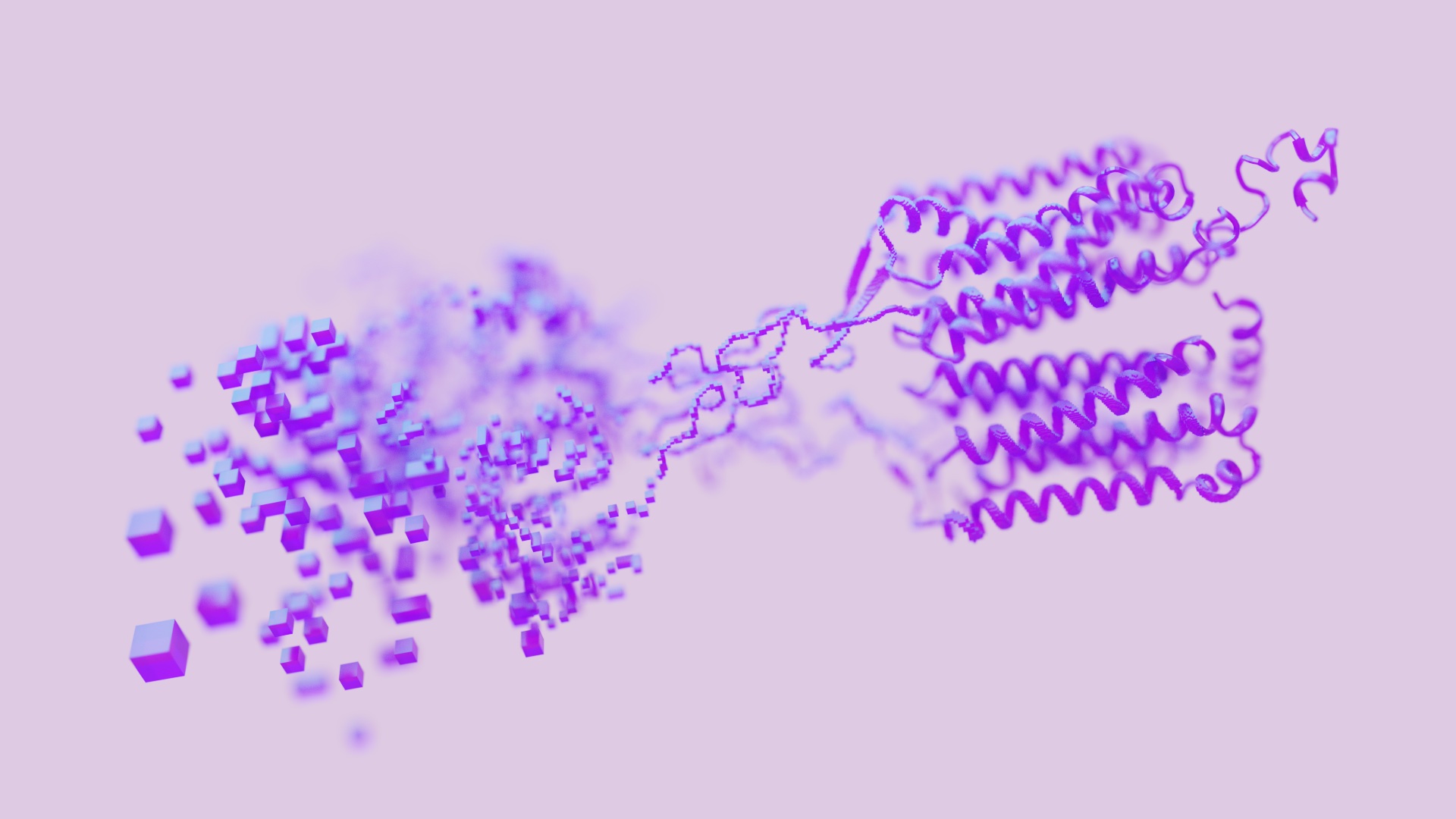
Results from our summit on responsible AI
Convened on October 25, the meeting explored how to responsibly develop software for creating new proteins. The event included leading academics from around the world and representatives from several industry, philanthropic, and government organizations.
-

Derrick Hicks receives WRF translational funding
The $250,000 grant will enable Hicks and colleagues to compare novel technology with established approaches to treating a range of cancers.
-

High schoolers try protein design at UW’s Summer STEM Camp
Several members of our Institute recently spent a day with 60 high school students as part of the UW’s STEM camp at W.F. West High School in Chehalis, Washington. Our goal was simple: we wanted to show students that science is more than just a subject in school—it’s a fascinating line of work that touches…
-

David Baker receives Frontiers of Knowledge Award in Spain
From the BBVA Foundation: From El Mundo: Vaccines against the coronavirus or malaria, drugs against cancer without side effects… With artificial intelligence as an ally, the biochemist from the University of Washington, winner of the Fronteras FBBVA award, develops proteins on demand to create solutions to medical and environmental problems Lea la historia completa en…
-

Lynda Stuart appointed Executive Director of the Institute for Protein Design
We’re pleased to announce that Lynda Stuart, MD, PhD, will serve as Executive Director of the Institute for Protein Design starting May 1. She is an accomplished immunologist and former Deputy Director at the Bill & Melinda Gates Foundation. Dr. Lynda Stuart is a physician, scientist, and advocate for healthcare as a human right with…
-

Undergrad researcher Hannah Han is in the Husky 100
The University of Washington today announced that IPD Undergraduate Researcher Hannah Han is among the 2023 Husky 100. Each year, the Husky 100 recognizes 100 undergraduate and graduate students from the UW Bothell, Seattle, and Tacoma campuses in all areas of study who are making the most of their time at the University of Washington.…
-
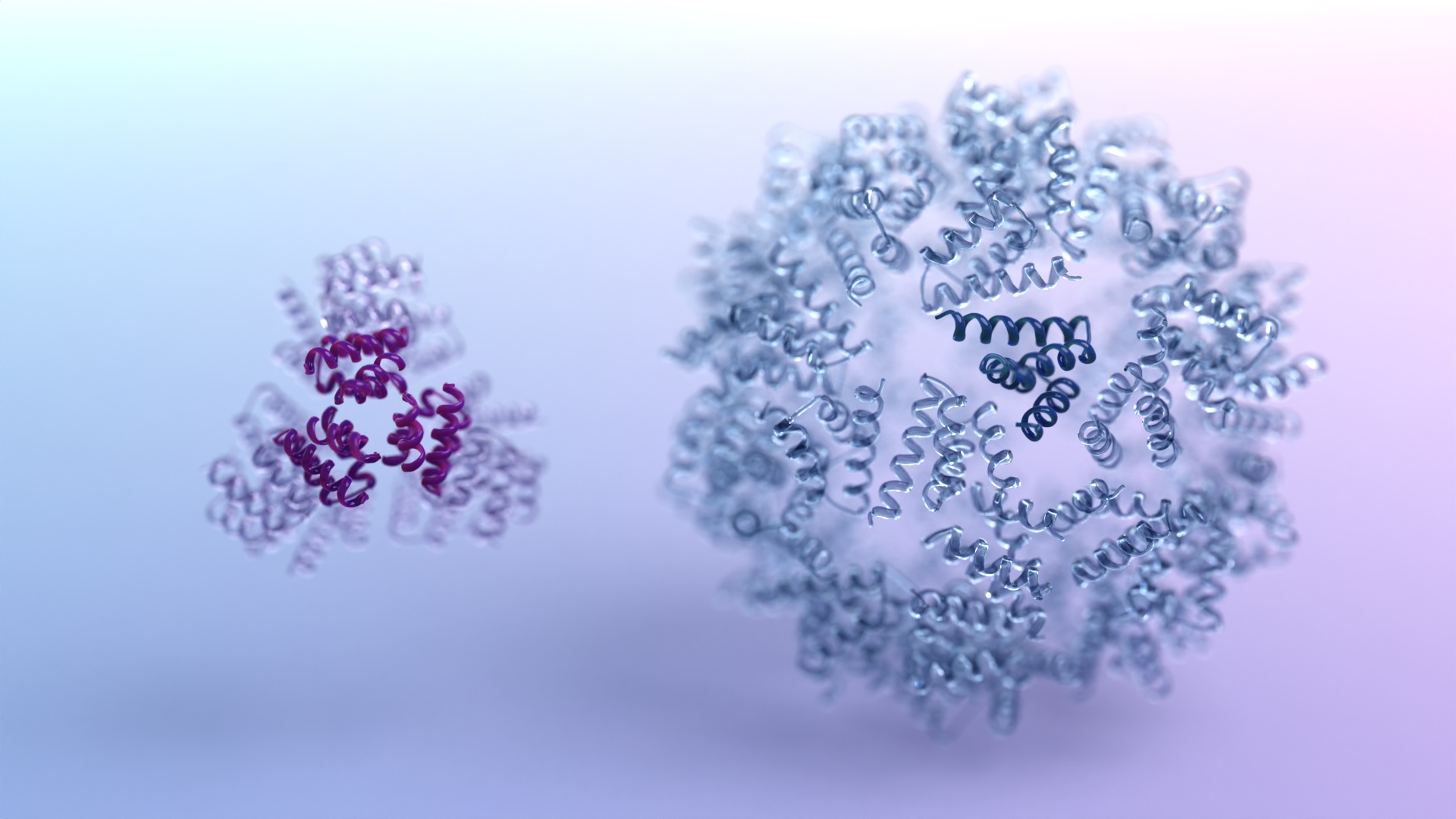
Top-down design of protein architectures with reinforcement learning
Today we report in Science [PDF] the successful application of reinforcement learning to a challenge in protein design. This research is a milestone in the use of artificial intelligence for science, and the potential applications are vast, from developing more effective cancer treatments to new biodegradable textiles. A team led by scientists in the Baker…
-
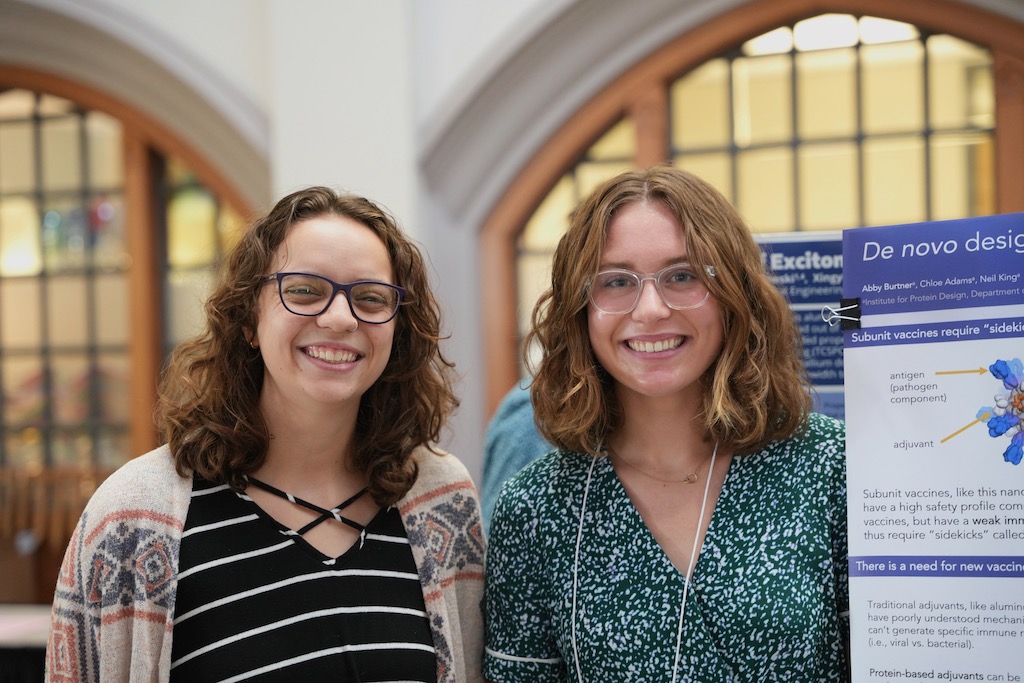
Abigail Burtner named a UW Goldwater Scholar
Five University of Washington undergraduates have been honored as Goldwater Scholars by the Goldwater Foundation, marking 2023 as the first time five students from the UW were named in a single year. The Goldwater Foundation awards undergraduate scholarships to students who show exceptional academic promise pursuing research careers in the natural sciences, mathematics and engineering. The…
-
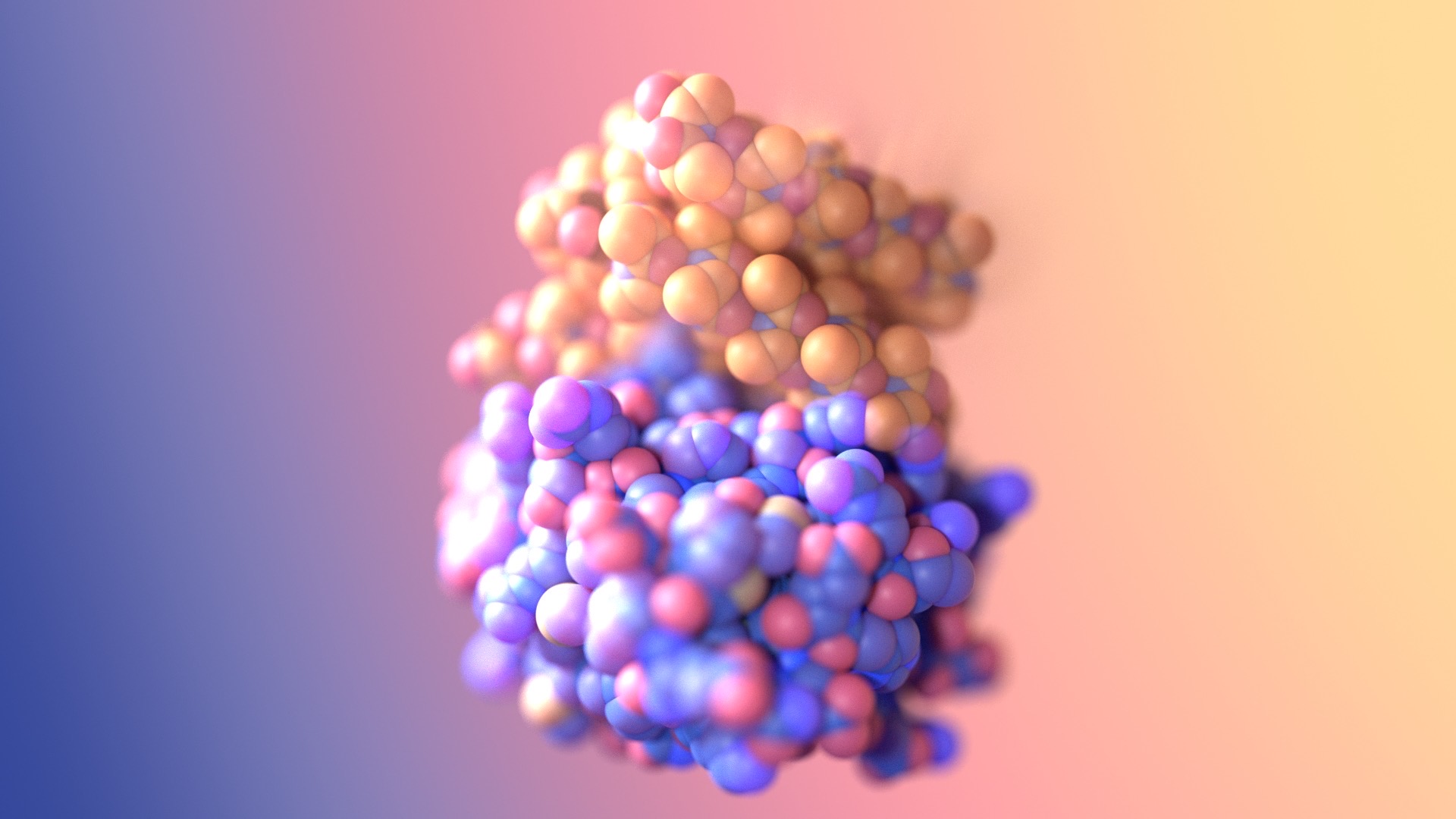
RFdiffusion now free and open source
Today we are making RFdiffusion, our artificial intelligence (AI) program that can generate novel proteins with potential applications in medicine, vaccines, and advanced materials, free for both non-profit and for-profit use under a governed license. The software, which has been tested in our labs, is much faster and more capable than prior protein design tools.…
-
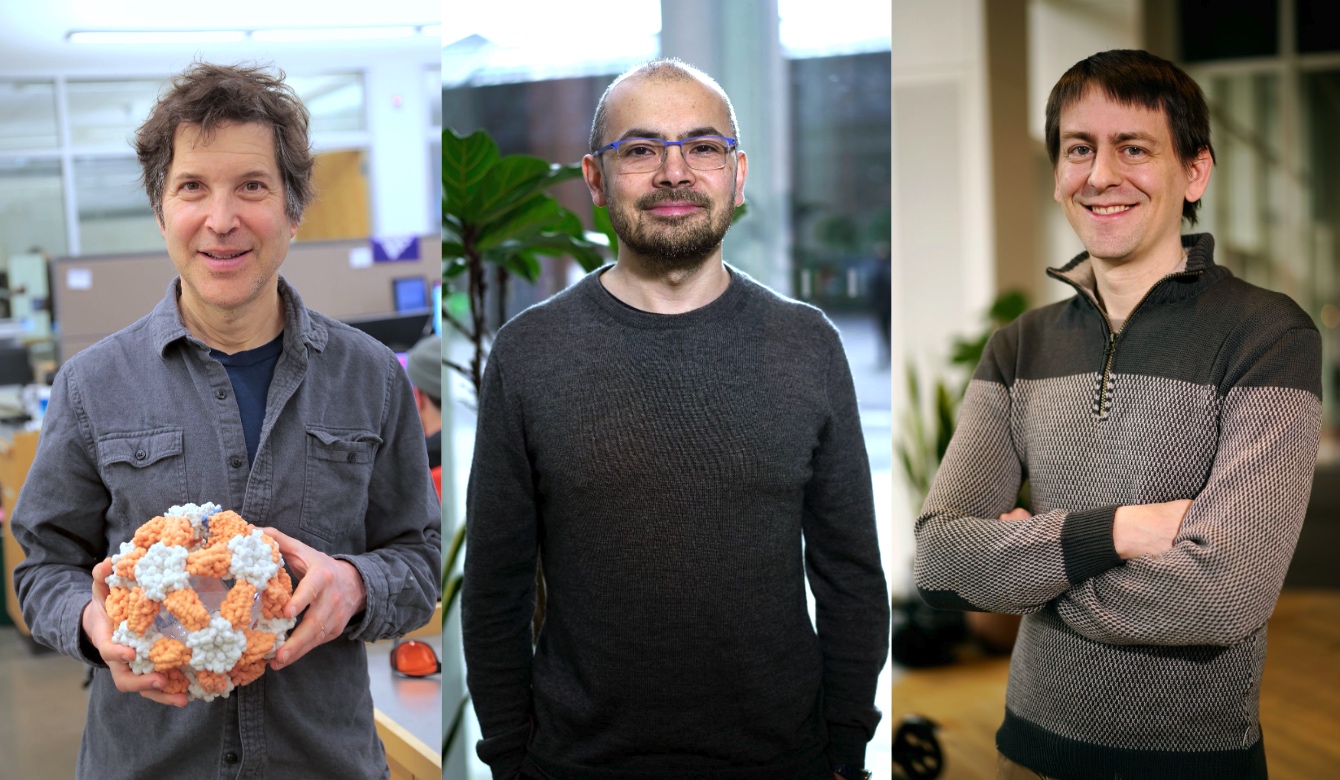
Frontiers of Knowledge Award goes to David Baker, Demis Hassabis and John Jumper
The 15th BBVA Foundation Frontiers of Knowledge Award in Biology and Biomedicine has gone to David Baker, Demis Hassabis and John Jumper “for their contributions to the use of artificial intelligence for the accurate prediction of the three-dimensional structure of proteins.” From the BBVA Foundation: Baker – a Professor of Biochemistry at the University of…
-
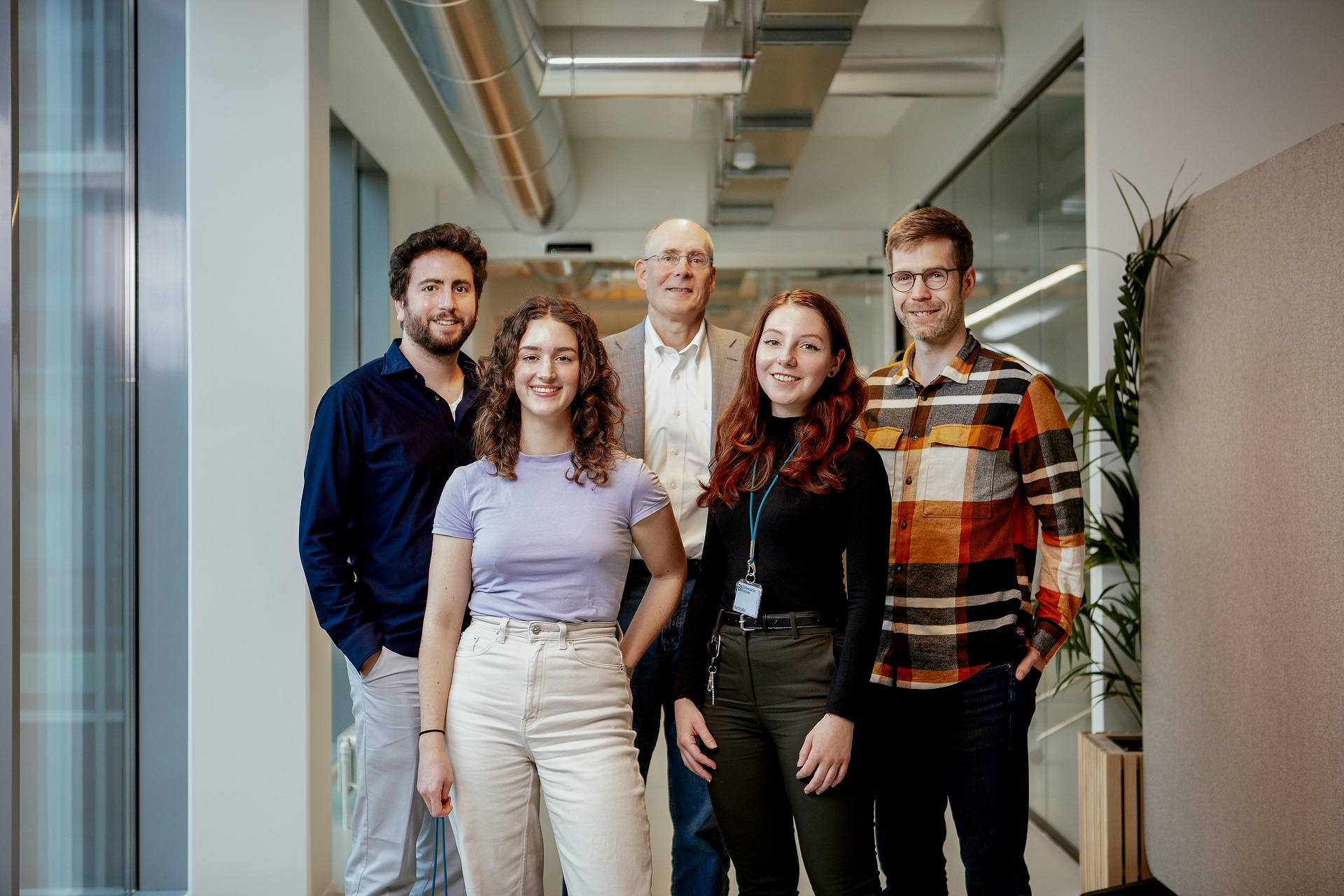
Establishing our first international translational research project
From our partners at the BioInnovation Institute: BioInnovation Institute (BII), an international enterprise foundation with a non-profit objective incubating and accelerating world-class life science research, announces today that it has accepted a new project into its Bio Studio program. Based on recent breakthroughs in Artificial Intelligence (AI) and protein design, the project is creating a…
-
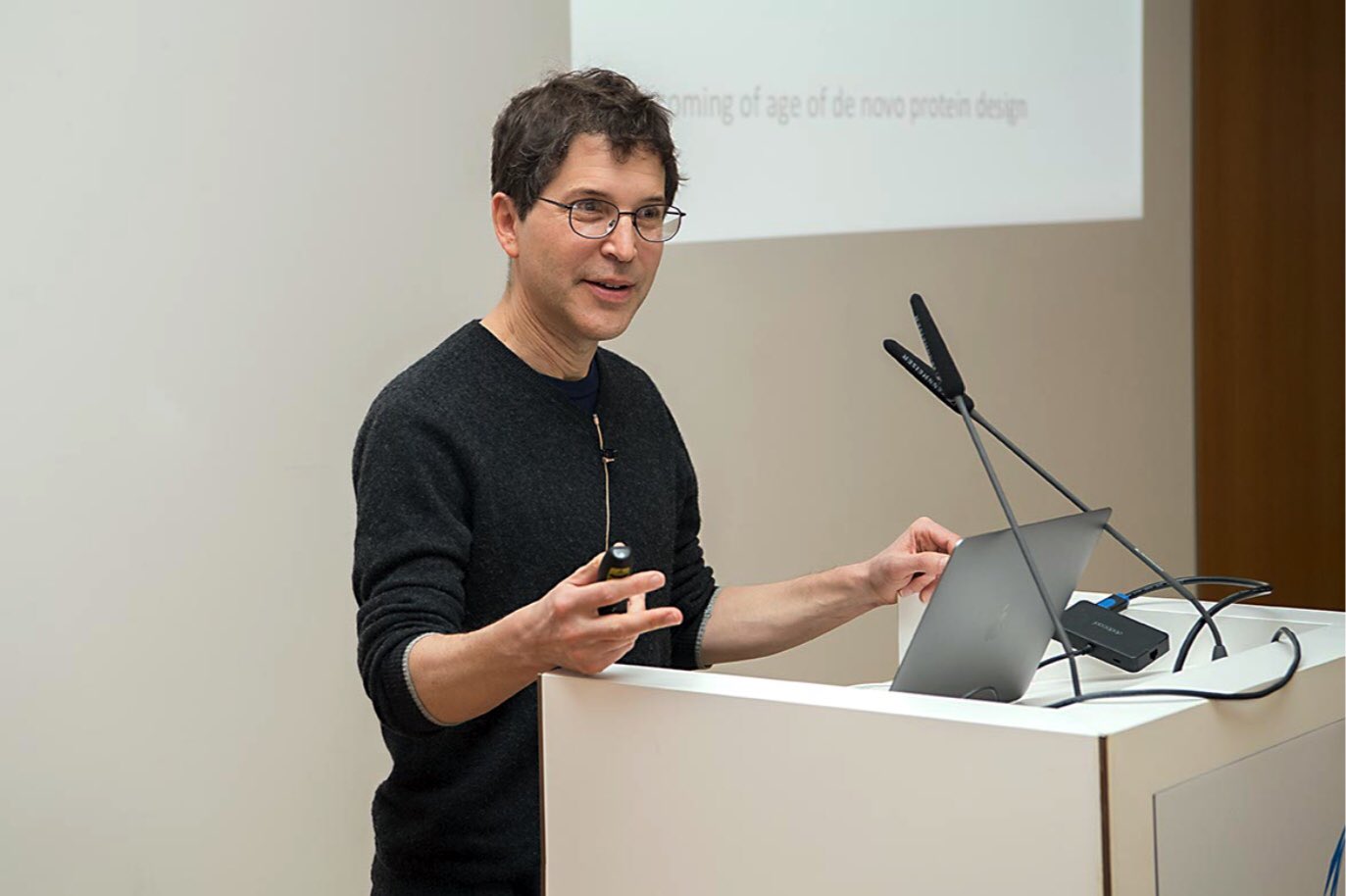
David Baker to present at the NIH Director’s Lecture Series
David Baker presented at the NIH Director’s Wednesday Afternoon Lecture Series on December 14, 2022. From the National Institutes of Health: The NIH Director’s Wednesday Afternoon Lecture Series, colloquially known as WALS, is the highest-profile lecture program at the NIH. Traditionally, lectures have occurred on most Wednesdays from September through June from 3:00 to 4:00…
-
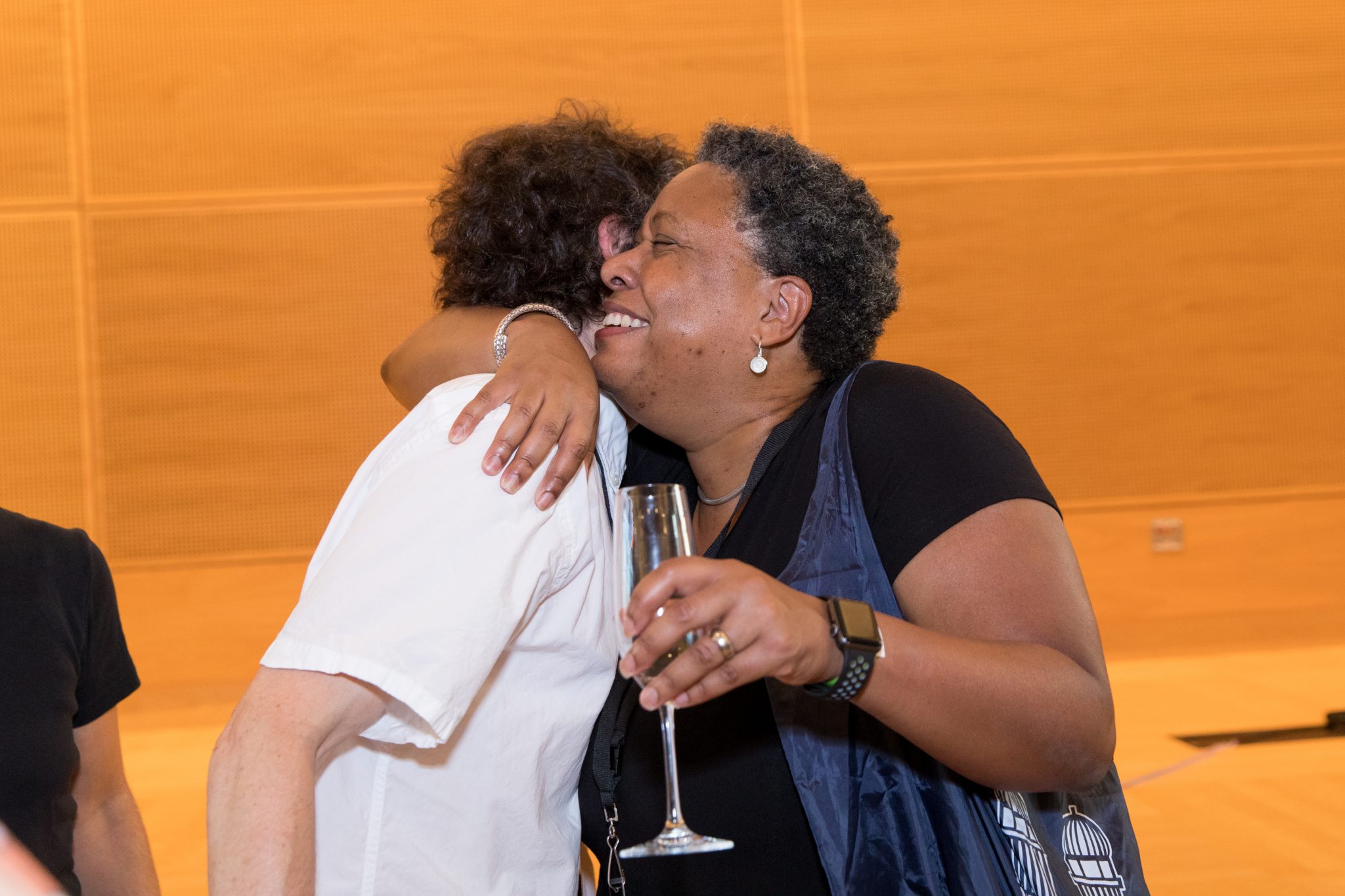
Celebrating our 10-year anniversary
This week we celebrated the 10-year anniversary of the Institute for Protein Design. Current members, advisors, supporters, and old friends all came together on campus to share memories and forge new friendships. It was a night to remember. A lot has changed in the past decade. At our founding, the concept of protein design…
-
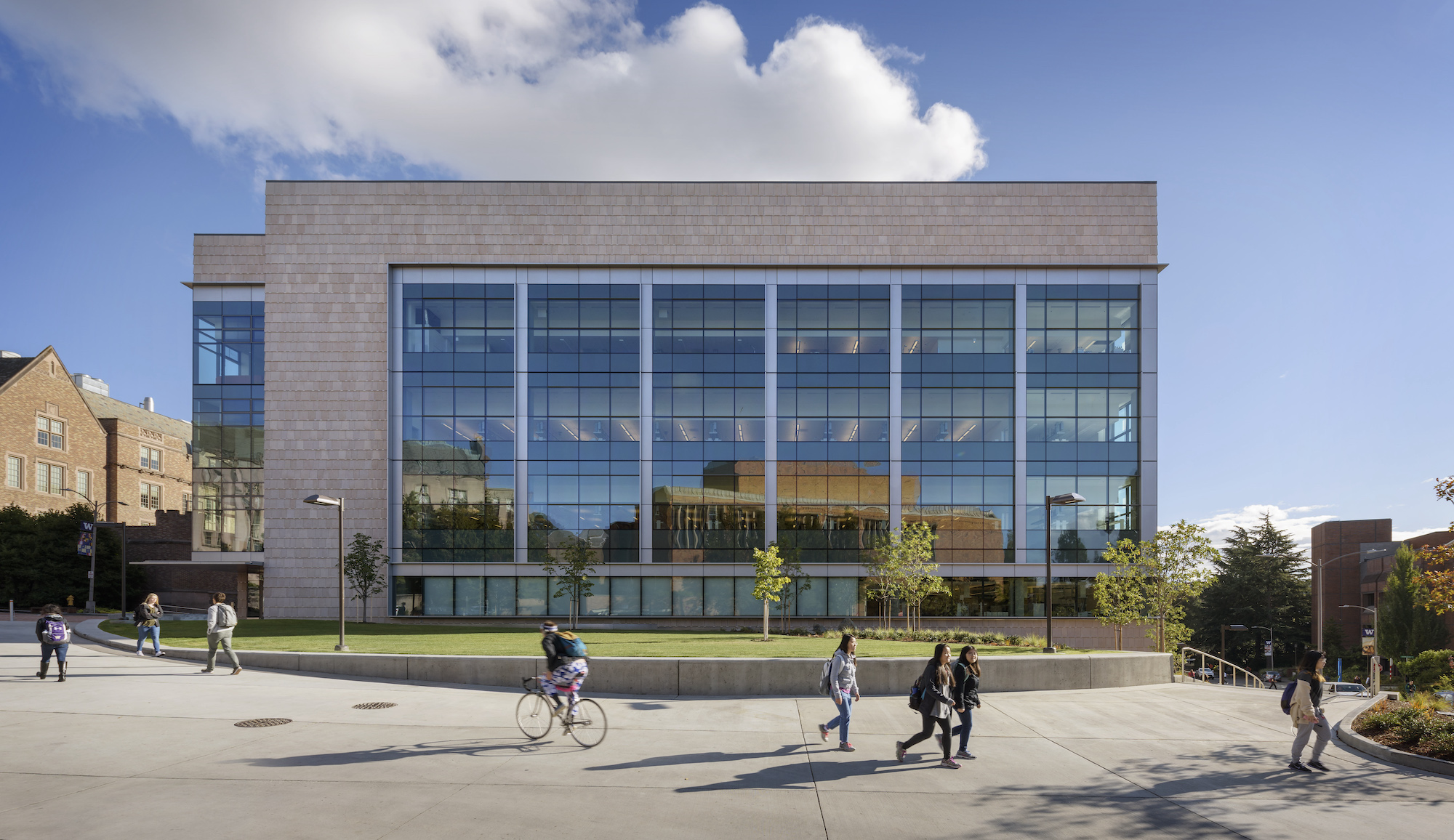
AWS gift supports protein structure prediction and design
Amazon Web Services (AWS), a leading cloud computing platform, is donating server time to the Institute for Protein Design to accelerate research in protein structure prediction and design. Computing credits valued at over $1M will be used to train optimized versions of RoseTTAFold for higher accuracy. The research will also support the ongoing development of…
-

Anindya Roy wins Go-To-Market Award for drug development
The Washington Entrepreneurial Research Evaluation and Commercialization Hub (WE-REACH) is pleased to announce a product concept award for Dr. Anindya Roy and his team at the UW Medicine Institute for Protein Design, including Drs. Jake Kraft and Hua Bai. They are developing a novel binder protein in an aerosolized delivery system to treat idiopathic pulmonary…
-
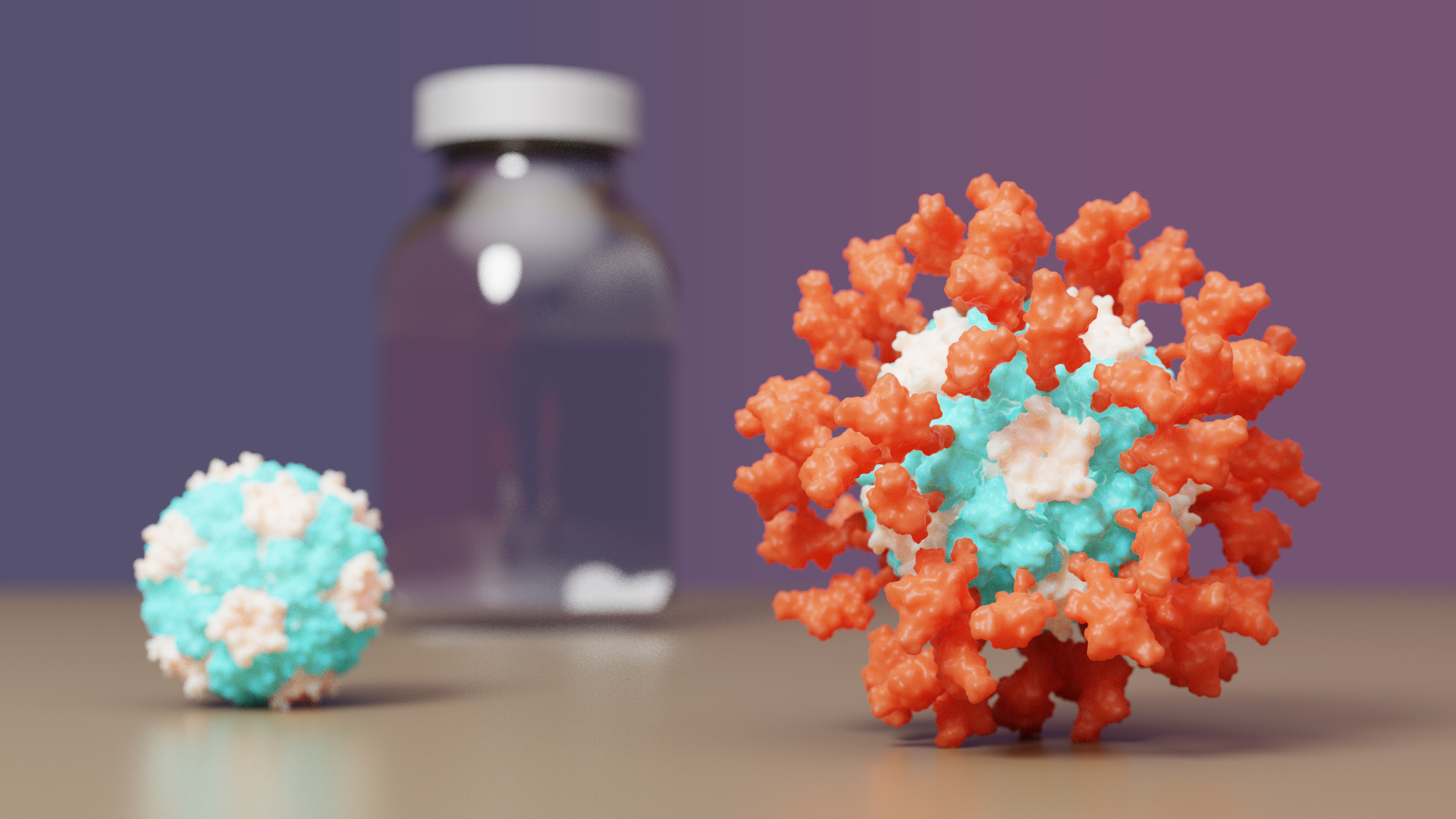
COVID-19 vaccine with IPD nanoparticles seeks full approval
A COVID-19 vaccine developed at the University of Washington School of Medicine has proven safe and effective in late-stage clinical testing. SK bioscience, the company leading the vaccine’s clinical development abroad, is seeking full approval for its use in South Korea and beyond. If approved by regulators, the vaccine will be made available through COVAX,…
-
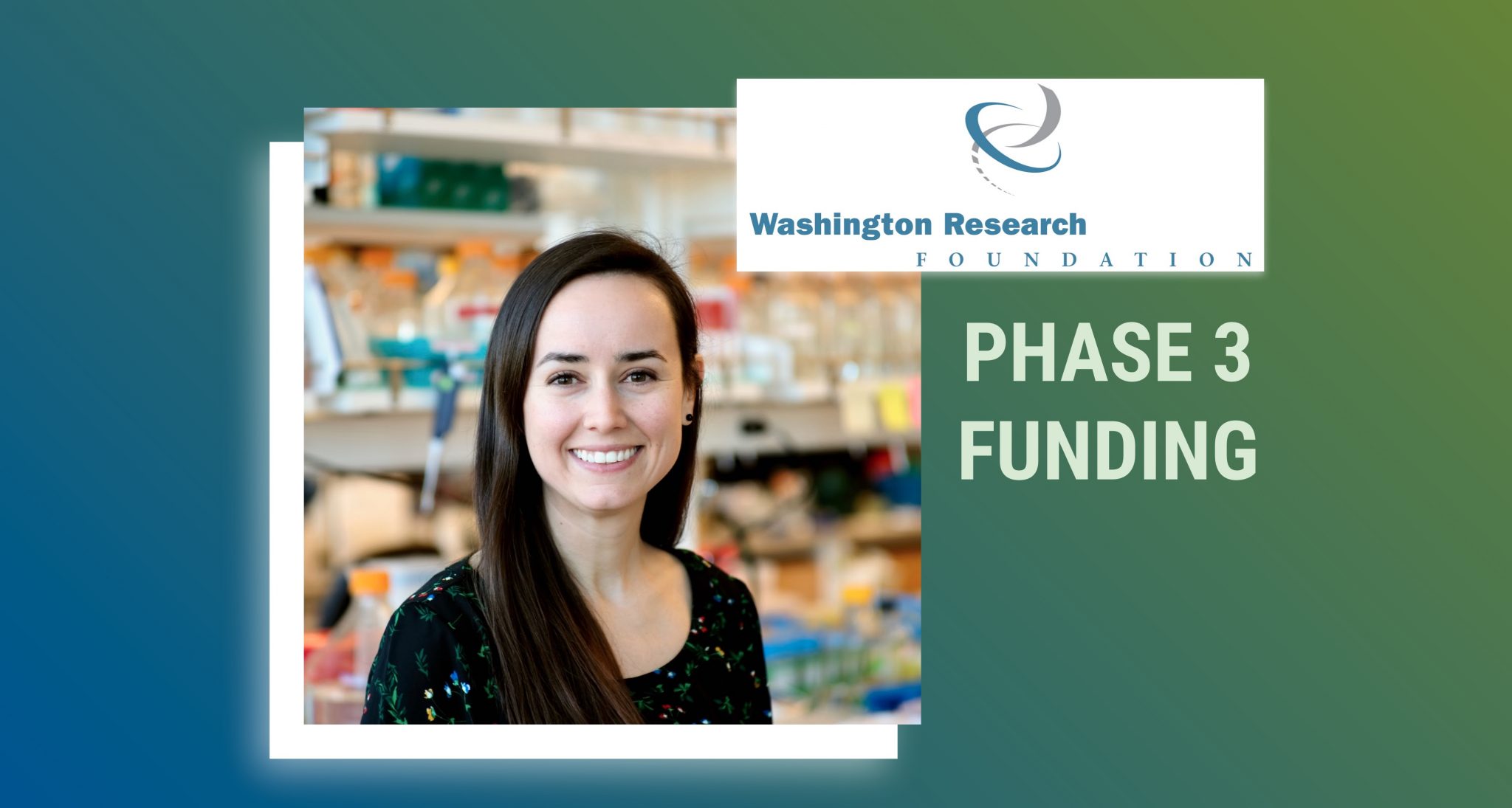
Stephanie Berger wins additional WRF translational funding
Washington Research Foundation (WRF) has awarded a $700,000 phase three technology commercialization grant to Stephanie Berger, Ph.D., to support the development of an oral biologic for inflammatory bowel disease (IBD). Berger, a translational investigator at the Institute for Protein Design, received two previous grants totaling $300,500 from WRF for this work. IBD affects roughly three…
-

On the passing of Tachi Yamada
Tadataka “Tachi” Yamada MD, KBE served as the Advisory Board Chair of our Institute since its founding almost ten years ago. His tremendous mentorship helped us in innumerable ways to grow from a single-PI Institute founded by David Baker to a group of five faculty and almost 200 scientists and staff. Tachi also helped…
-

George Ueda and James Lazarovits awarded WRF translational funding
The Washington Entrepreneurial Research Evaluation and Commercialization Hub (WE-REACH) has announced investments in three new awards, including one to researches at the Institute for Protein Design, to expedite early-stage product development for promising biomedical innovations. The three awards are intended to reduce skin injury from wound dressing, to treat COVID-19 induced viral sepsis, and to…
-
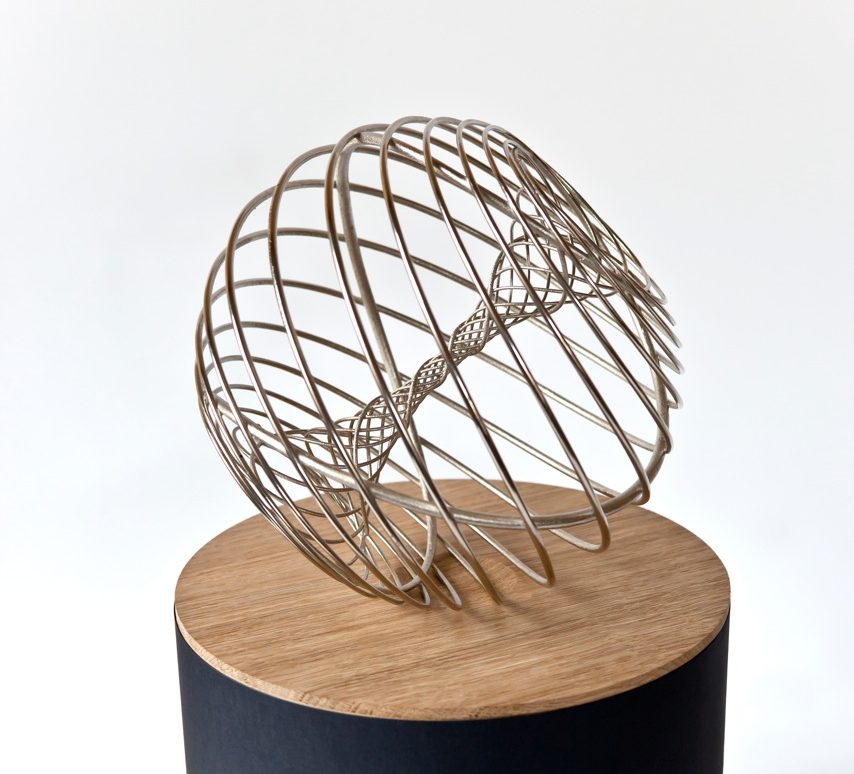
David Baker awarded 2021 Breakthrough Prize
The Breakthrough Prize Foundation today announced the winners of the 2021 Breakthrough Prize, recognizing an array of achievements in the Life Sciences, Fundamental Physics and Mathematics. The traditional gala award ceremony, attended by superstars of movies, music, sports and tech entrepreneurship, has been postponed until March 2021. David Baker, director of the Institute for Protein…
-

Rosetta Commons Black Lives Matter Statement
Trigger warning: mentions acts of violence and racism We, as members of the Rosetta Commons, recognize the grief and frustration of many members of our community and reaffirm our commitment to the safety and dignity of Black lives. The past few months have been traumatic. The recent murders of George Floyd, Breonna Taylor, Tony McDade,…
-
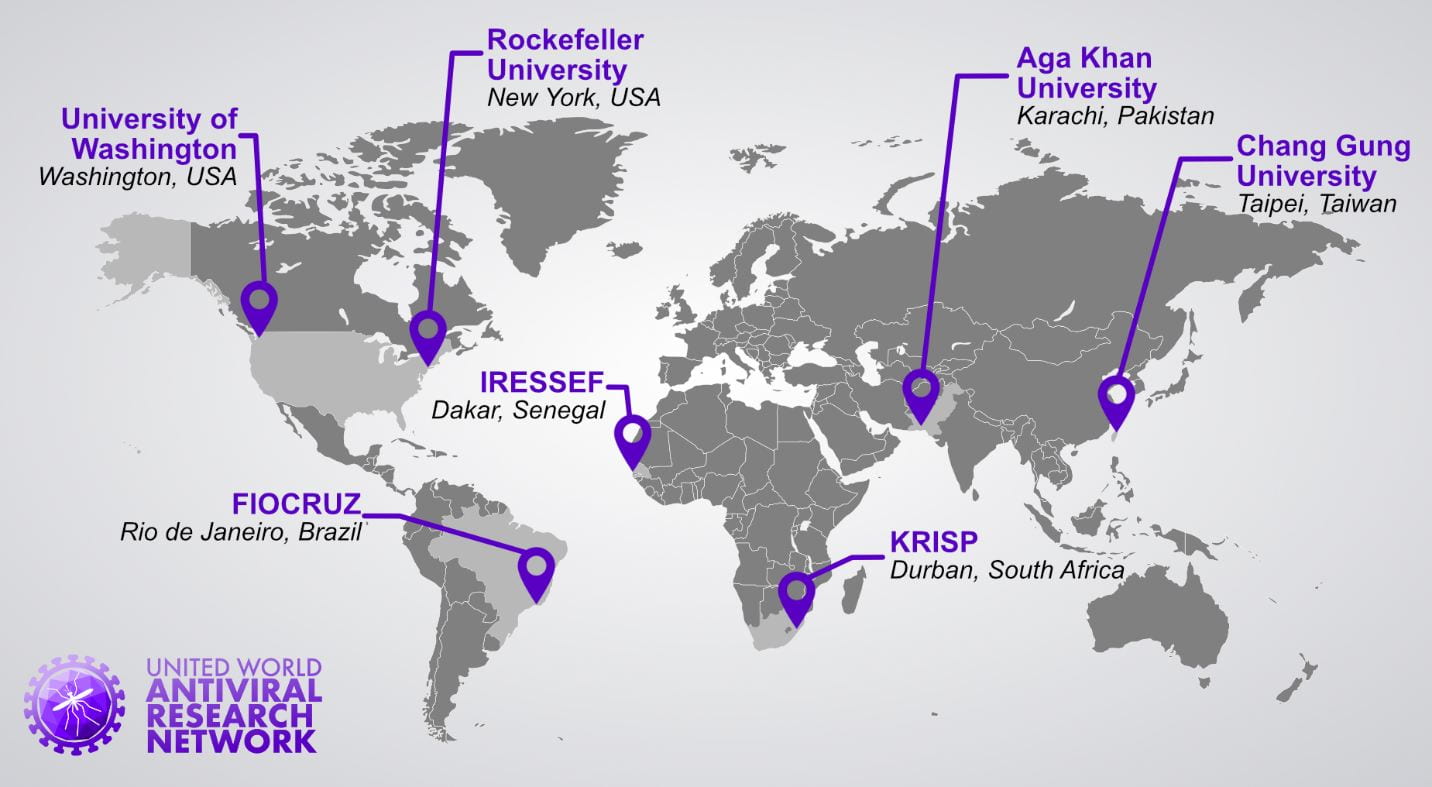
Introducing UWARN: The United World Antiviral Research Network
The newly formed United World Antiviral Research Network (UWARN) will bring together researchers from institutions in several countries to spot and confront emerging pandemic viruses. The network will provide surveillance for emerging pandemic viruses, develop urgently needed diagnostics and therapeutics, and expand understanding of viral immune responses, which is key to vaccine development. The network will…
-
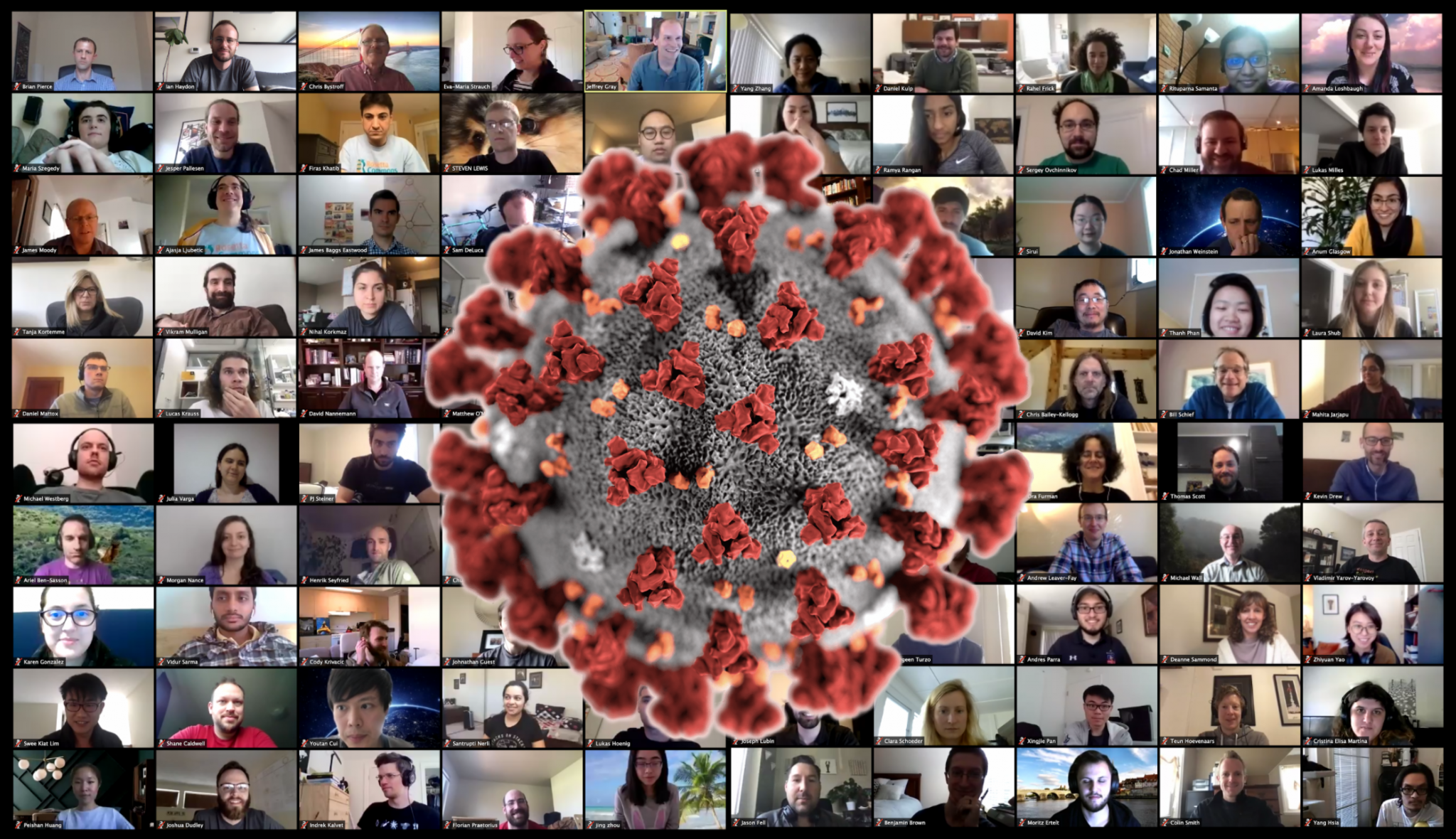
With an emergency meeting, RosettaCommons aims to accelerate COVID-19 research
On the day the number of confirmed global COVID-19 infections crossed one million, a team of over three hundred scientists from around the world kicked off a virtual conference aimed at stopping the virus. The event was an emergency meeting of member labs from the RosettaCommons, a consortium of over 90 laboratories who together develop…
-
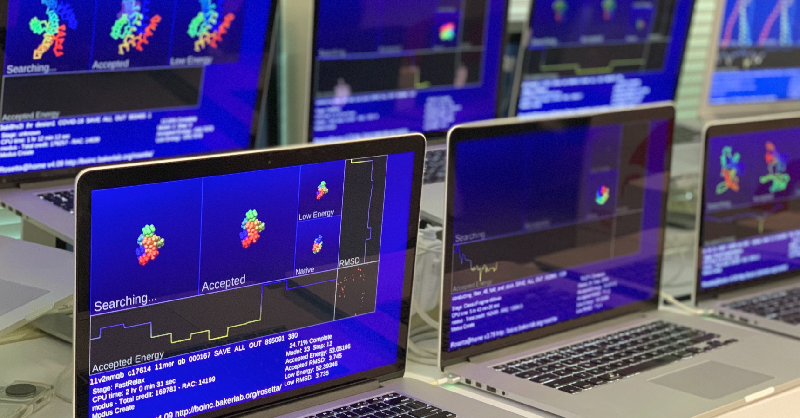
Volunteers rally to Rosetta@Home to stop COVID-19
As schools, museums, offices and stores shutter to slow the spread of the new coronavirus, millions of people are now finding themselves stuck at home. Fortunately, even in these trying times, there are are small steps that anyone can be take to help combat COVID-19. One option is to donate to biomedical research — but…
-
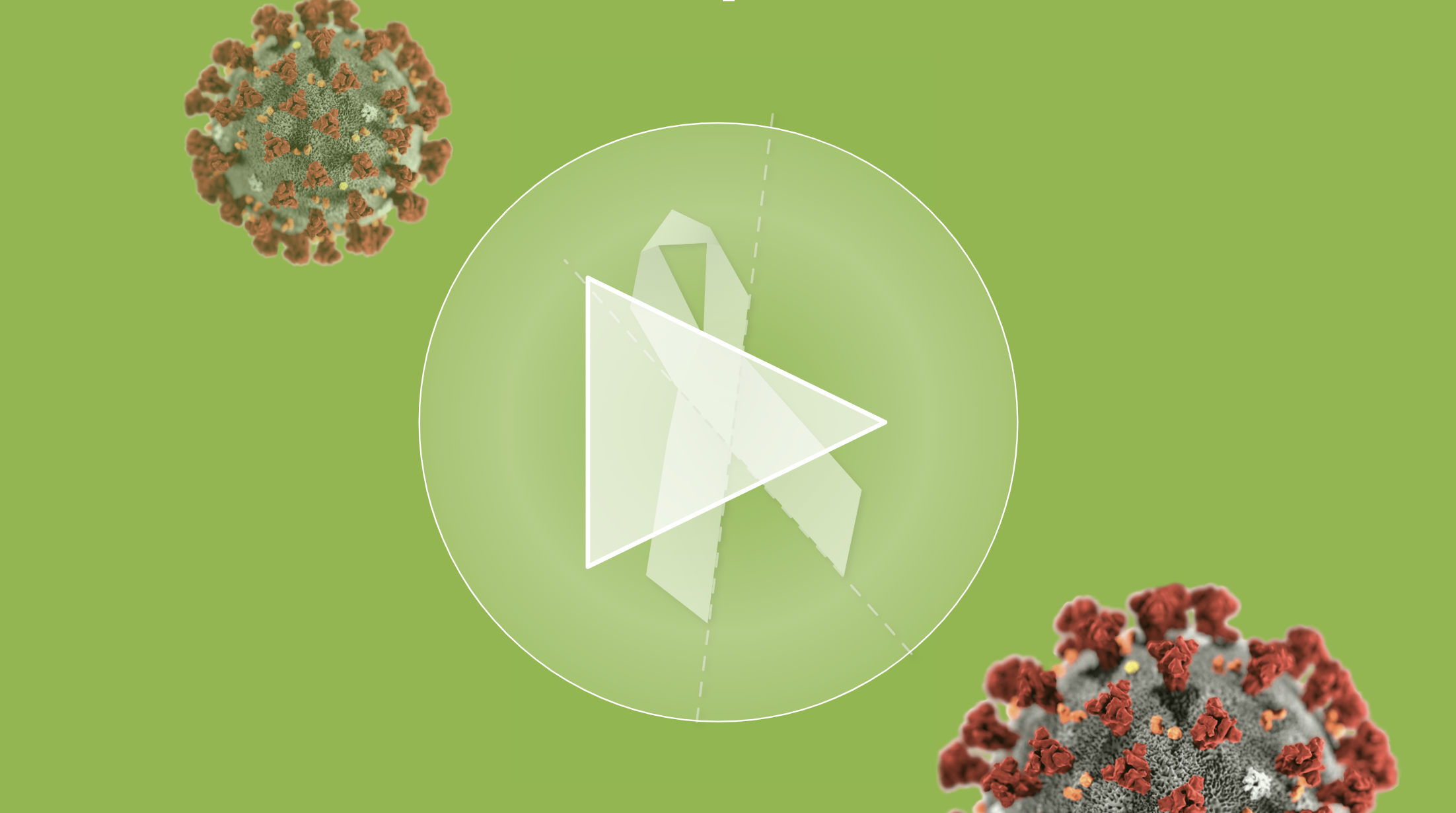
Play Foldit to help stop coronavirus (VIDEO)
You don’t have to be a scientist to do science! By playing the computer game Foldit, you can help discover new antiviral drugs that might stop the novel coronavirus. The most promising solutions will be manufactured and tested at the University of Washington Institute for Protein Design in Seattle. Foldit is run by academic research scientists. It is free…
-
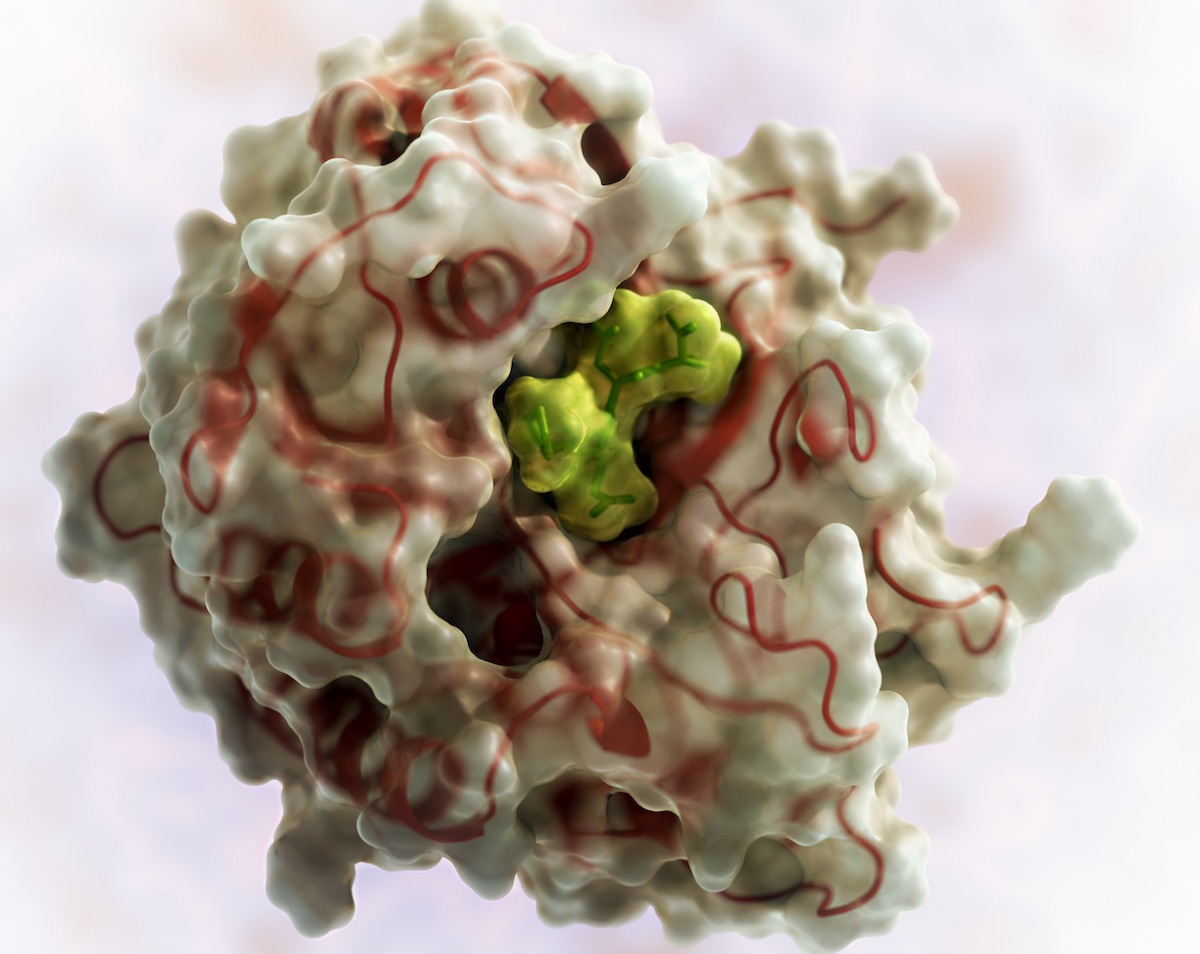
Takeda acquires PvP Biologics
PvP Biologics is on a mission to develop a highly-effective therapeutic to reduce the burden of living with celiac disease. They are advancing an oral enzyme — TAK-062 — designed to break down gluten in the stomach. This exciting research, which began as an iGEM project in 2011, was matured at the Institute for Protein…
-
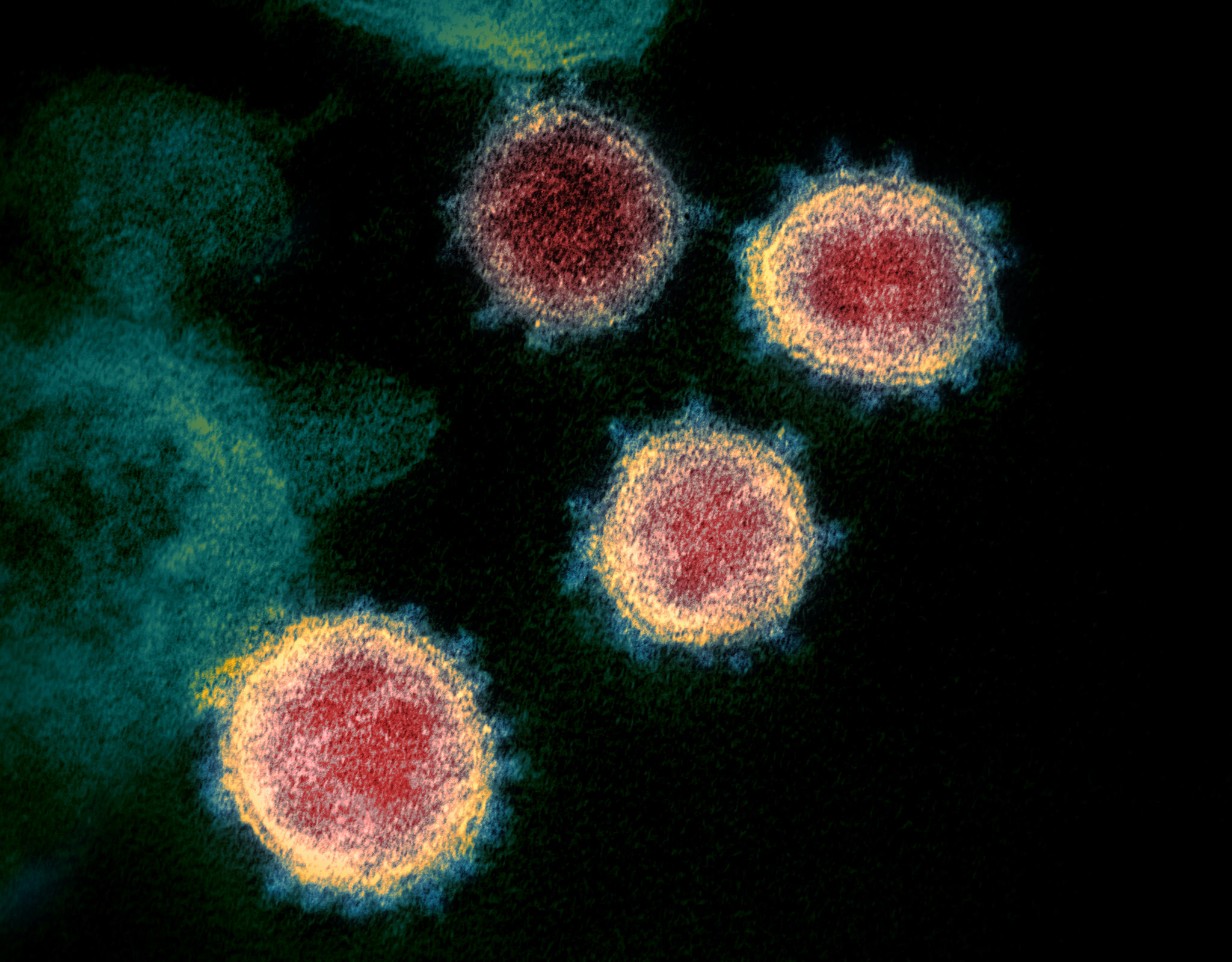
Rosetta’s role in fighting coronavirus
We are happy to report that the Rosetta molecular modeling suite was recently used to accurately predict the atomic-scale structure of an important coronavirus protein weeks before it could be measured in the lab. Knowledge gained from studying this viral protein is now being used to guide the design of novel vaccines and antiviral drugs.…
-

Introducing WE-REACH, a new biomedical innovation hub
With $4 million in matching funds from the National Institutes of Health, the University of Washington has created a new integrated center to match biomedical discoveries with the resources needed to bring innovative products to the public and improve health. “The University of Washington and regional partner institutions produce some of the most exciting biomedical…
-
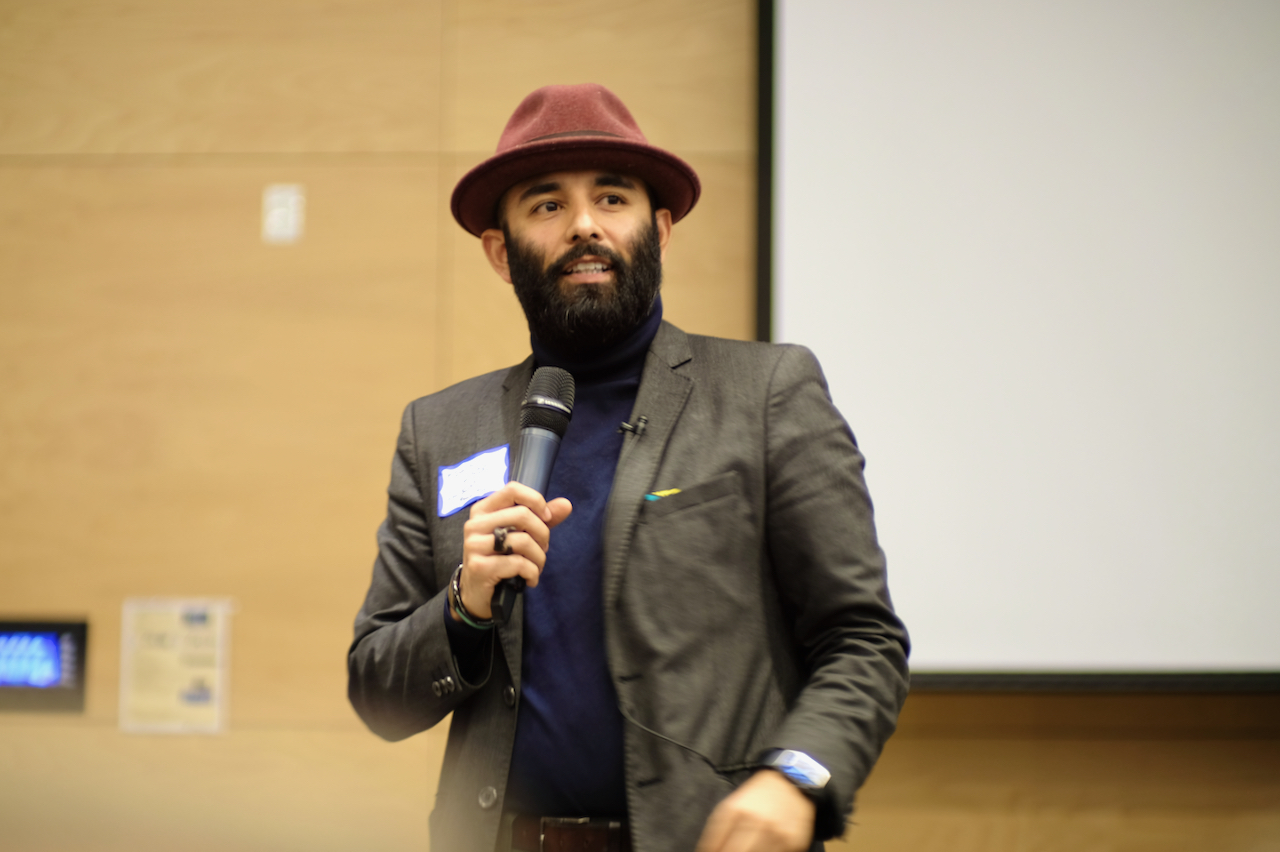
SCI-STEM Symposium 2020
The Institute for Protein Design at the University of Washington held the second symposium aimed at providing strategies to address diversity challenges in science, technology, engineering, and math (STEM). The Strategies for Cultivating Inclusion in STEM (SCI-STEM) symposium featured leading keynote speakers, panel discussions, and interactive breakout sessions. Members of the STEM community at all…
-
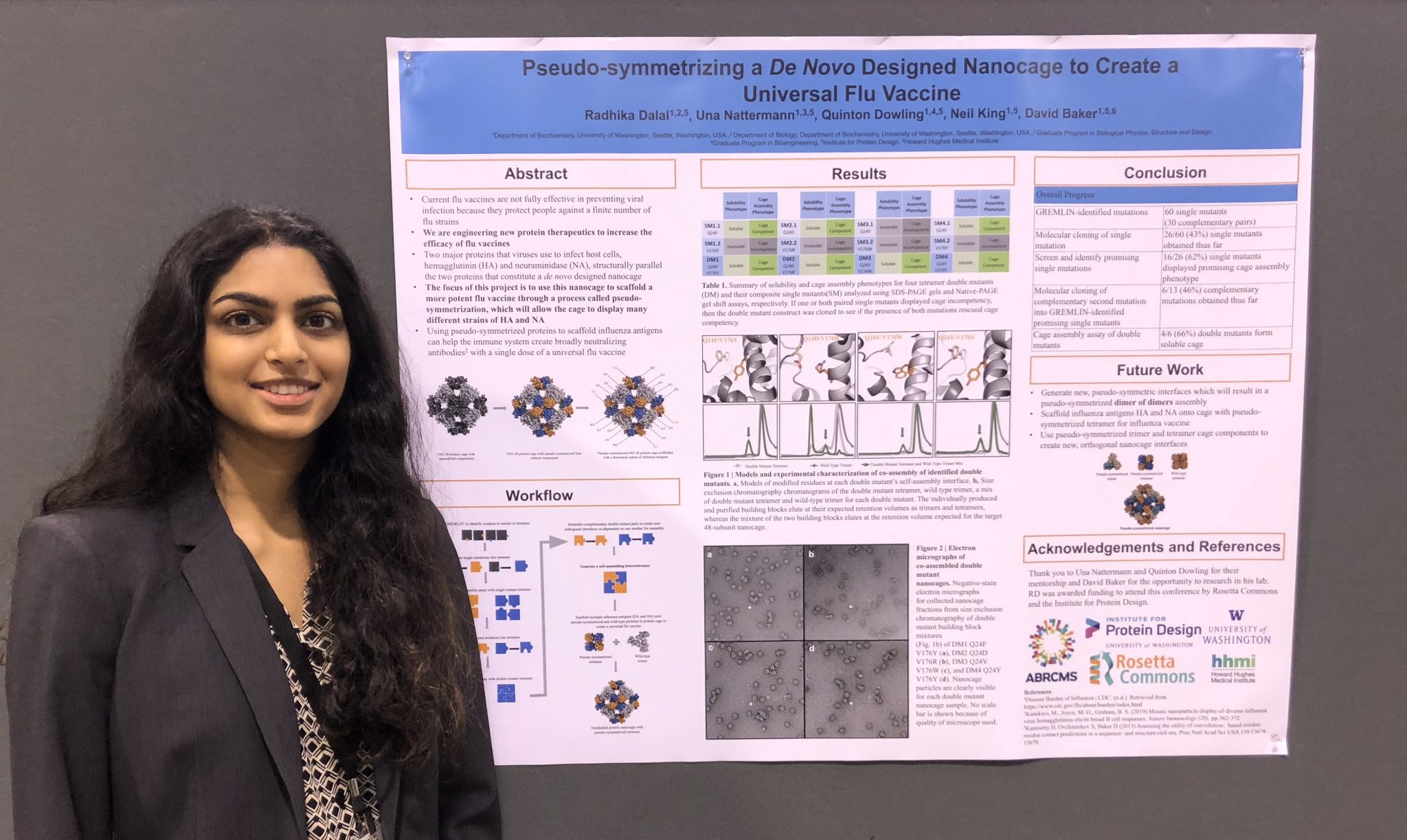
Radhika wins poster award at ABRCMS
Undergraduate researcher Radhika Dalal took home a poster award at this year’s Annual Biomedical Research Conference for Minority Students in Anaheim, California. Her mentors include IPD graduate student Una Natterman and Quinton Dowling. Way to go, Radhika! And congratulations to all the award winners:
-
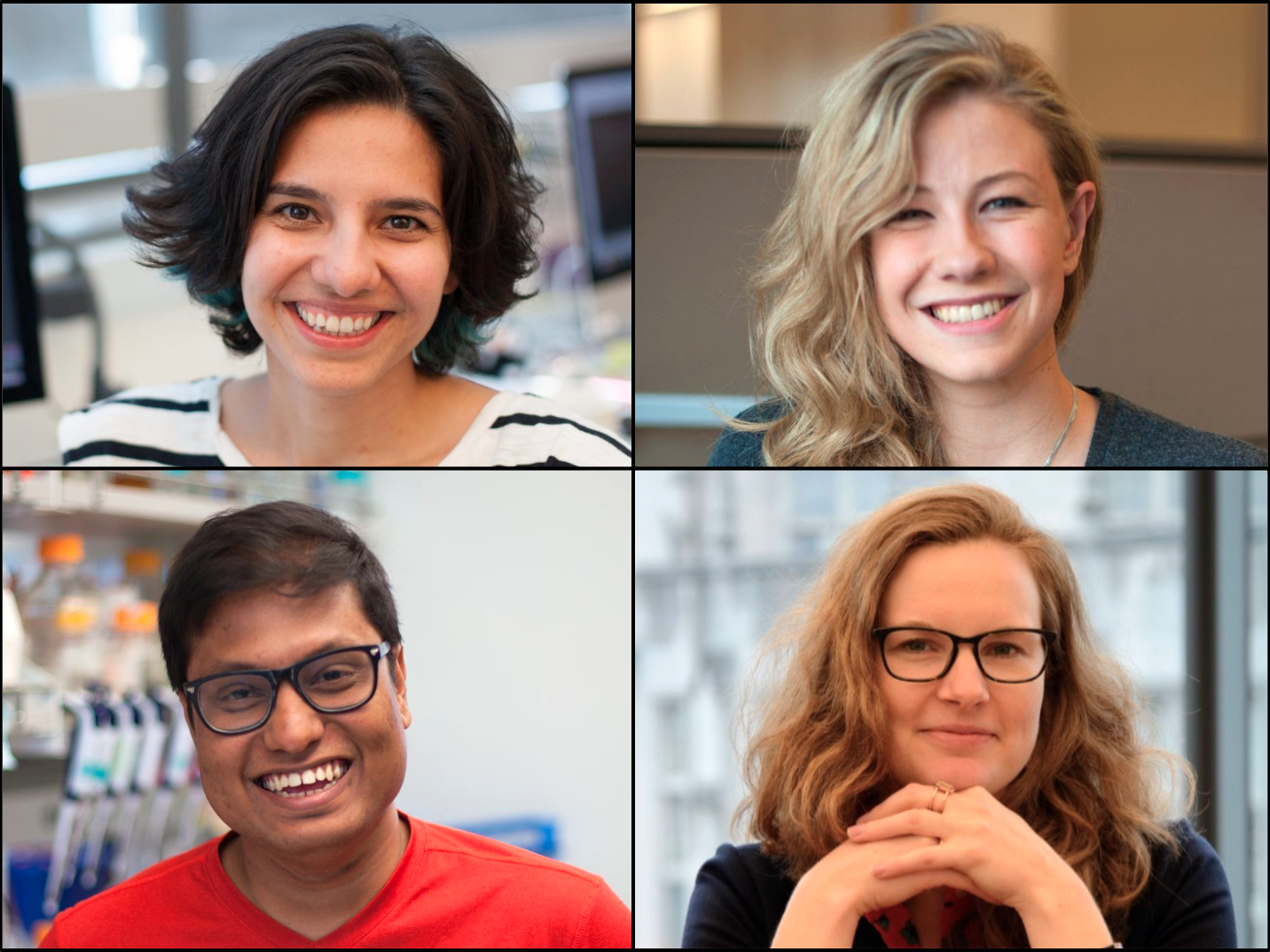
Our outstanding postdoc mentors
We’re thrilled to share that four members of our Institute have been nominated for the UW Graduate School’s Postdoc Mentoring Award. Each brings invaluable guidance and advice to their graduate student and undergraduate trainees. This Year’s Winner: Gabriella Wolff, Biology Finalists: Michael Beyeler, Psychology David Grossnickle, Biology Matthew Hart, Pathology Karla-Luise Herpoldt, Biochemistry Kelly Hines,…
-

Open Philanthropy awards $11.3 million to the Institute for Protein Design
The funds will support our technological revolution in protein design and enable the development of a universal flu vaccine. The $11.3 gift is one of the largest made to date by the San Francisco-based philanthropy in support of science. It is also the first to go to UW Medicine. The gift comes in two parts:…
-

SCI-STEM Symposium 2018
Update 2018-07-26: The 2018 SCI-STEM Symposium was recently featured in an eLife article. The Institute for Protein Design at the University of Washington held its first ever symposium aimed at providing strategies to address diversity challenges in science, technology, engineering, and math (STEM). The Strategies for Cultivating Inclusion in STEM (SCI-STEM) symposium featured leading keynote…
-
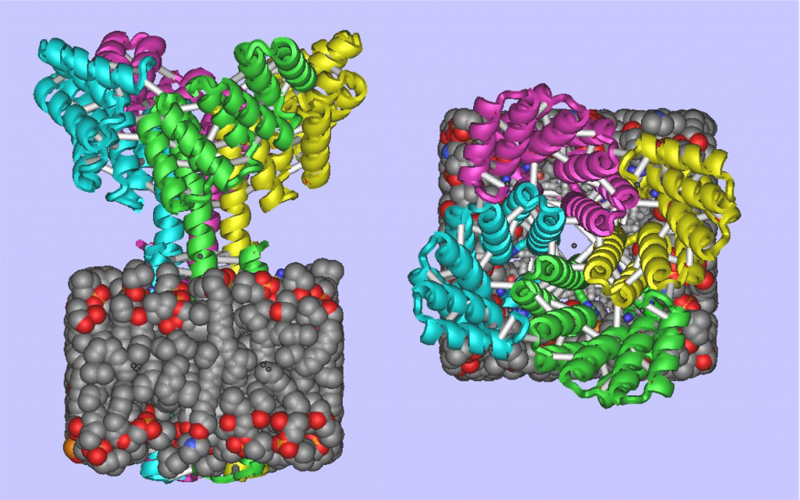
De Novo Design of Membrane Proteins
It is now possible to create complex, custom-designed transmembrane proteins from scratch ! Today Baker lab members published in Science “Accurate computational design of multipass transmembrane proteins” The Abstract reads as follows: The computational design of transmembrane proteins with more than one membrane-spanning region remains a major challenge. We report the design of transmembrane monomers,…
-
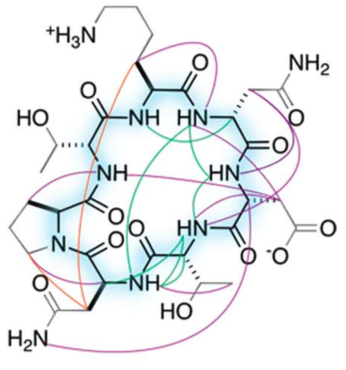
A New World of Designed Macrocycles
Today marks another major step forward for peptide based drug discovery. IPD researchers report in Science the computational design of a new world of small cyclic peptides, “Macrocycles”, increasing the number of the known kinds of these molecules by multiple fold. The conceptual art image below “Illuminating the energy landscape” shows the power of computational design…
-
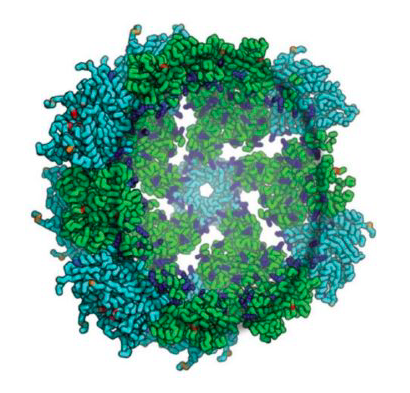
Synthetic Nucleocapsids Have Arrived
Published today in Nature, IPD researchers describe the first synthetic protein assemblies — dubbed synthetic nucleocapsids — that encapsulate their own genome and evolve in complex environments. Synthetic nucleocapsids are built to resemble viral capsids and could be used in future to deliver therapeutics to specific cells and tissues. These icosahedral protein assemblies are based off of…
-
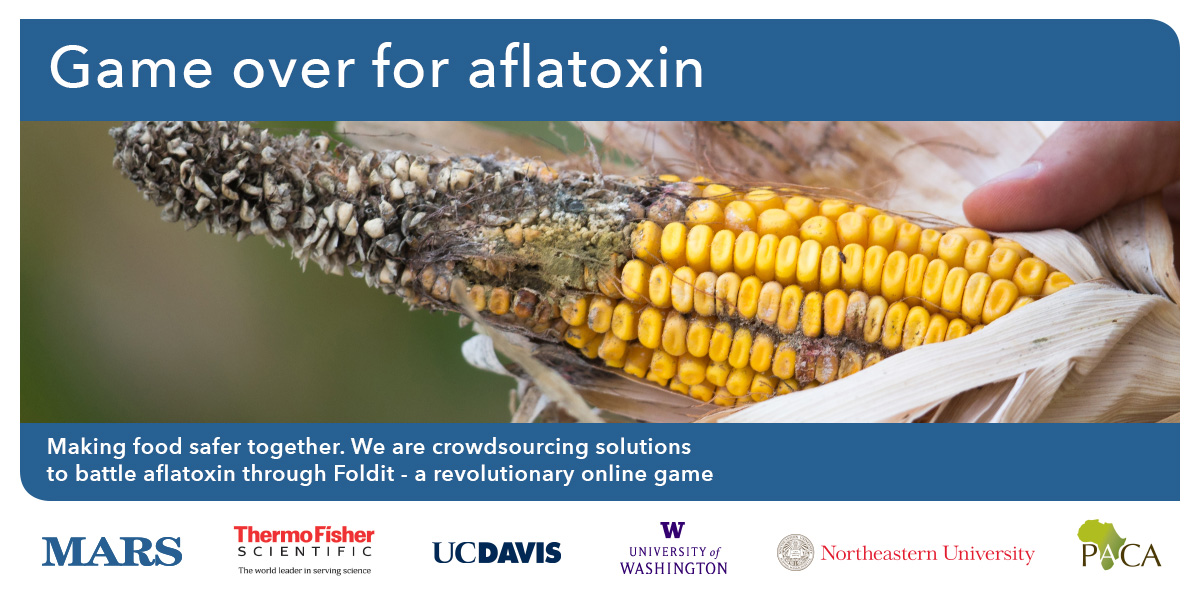
Foldit to Disarm a Fungal Toxin
Foldit alfatoxin project update 7/16/2018 Today, scientists from of the Institute for Protein Design will join Foldit gamers from around the world to help design an enzyme that can neutralize aflatoxin — a cancer-causing toxin produced by certain fungi that are found on agricultural crops such as corn, peanuts, cottonseed, and tree nuts. Foldit is a citizen…
-
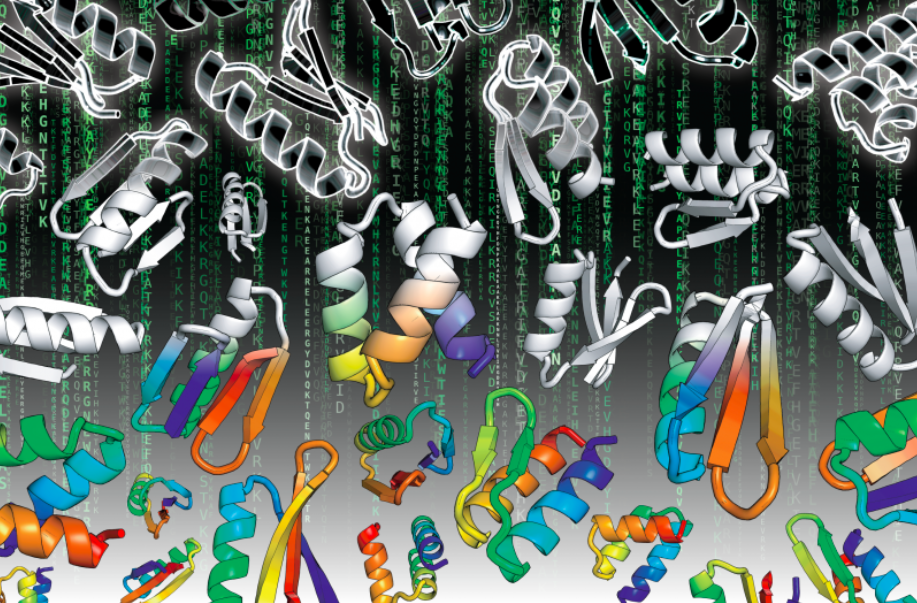
The Matrix of Protein Design
The Matrix movie (1999) depicts a future in which the reality perceived by most humans is actually a computer simulated reality called “the Matrix”. Published today in Science, the Baker lab and collaborators report on a new kind of Matrix – a new reality for large scale computational protein design which can achieve massive data driven improvements in our ability to design highly stable,…
-
Thank you, Bruce and Jeannie Nordstrom!
A few months ago, it was announced that the Institute for Protein Design is one of UW Medicine’s Priorities in their ACCELERATE campaign. We are grateful to have this support not only from UW Medicine, but also from donors who are contributing funds so that we may continue our work. One such gift came from…
-
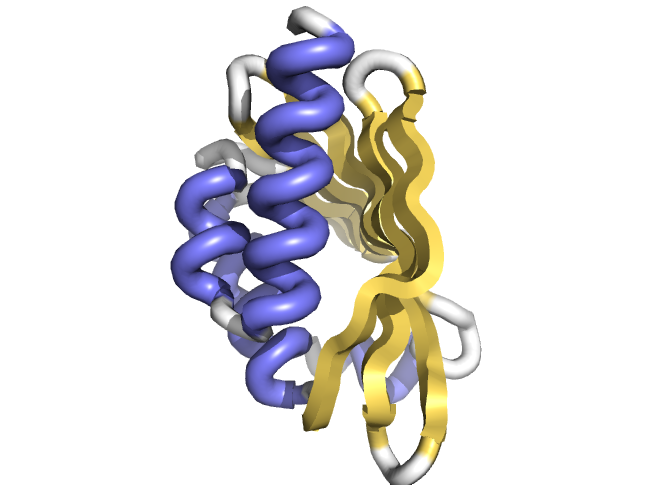
Design of novel cavity containing proteins
The latest paper coming out from the IPD was published today on the Science website. It’s titled “Principles for designing proteins with cavities formed by curved β sheets” with first co-authors Enrique Marcos and Benjamin Basanta, a former and current IPD member, respectively. Other IPD members on the paper include Tamuka Chidyausiku, Gustav Oberdorfer, Daniel-Adriano…
-

Unleashing the Power of Synthetic Proteins
Published today in Science Philanthropy Alliance, David Baker, Director of the Institute for Protein Design describes how the opportunities for computational protein design are endless — with new research frontiers and a huge variety of practical applications to be explored, from medicine to energy to technology. This is an exciting time as we are undergoing a technological revolution…
-
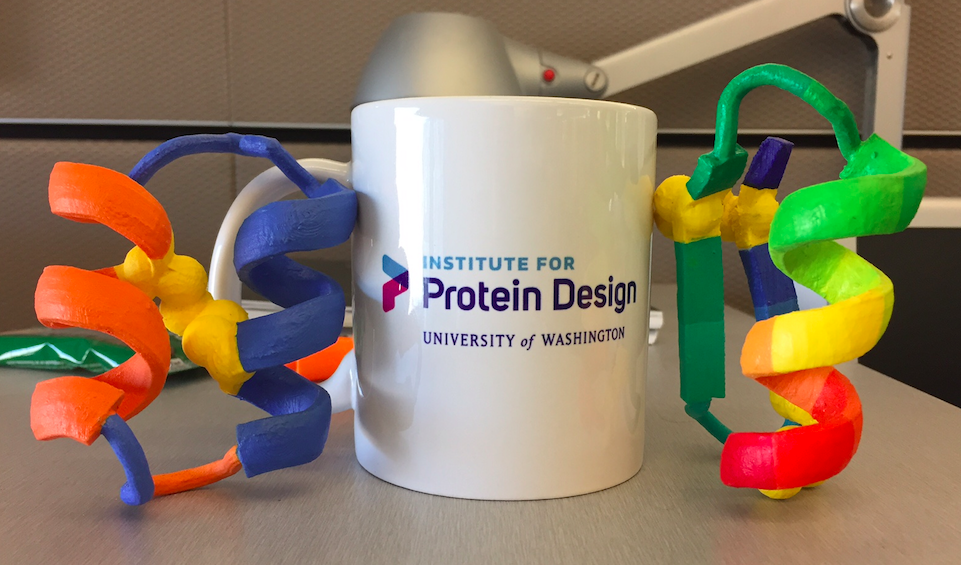
Hyper-stable Designed Peptides and the Coming of Age for De Novo Protein Design
Small constrained peptides combine the stability of small molecule drugs with the selectivity and potency of antibody-based therapeutics. However, peptide-based therapeutics have largely remained underexplored due to the limited diversity of naturally occurring peptide scaffolds, and a lack of methods to design them rationally. New computational design and wet lab methods developed at the Institute for…
-
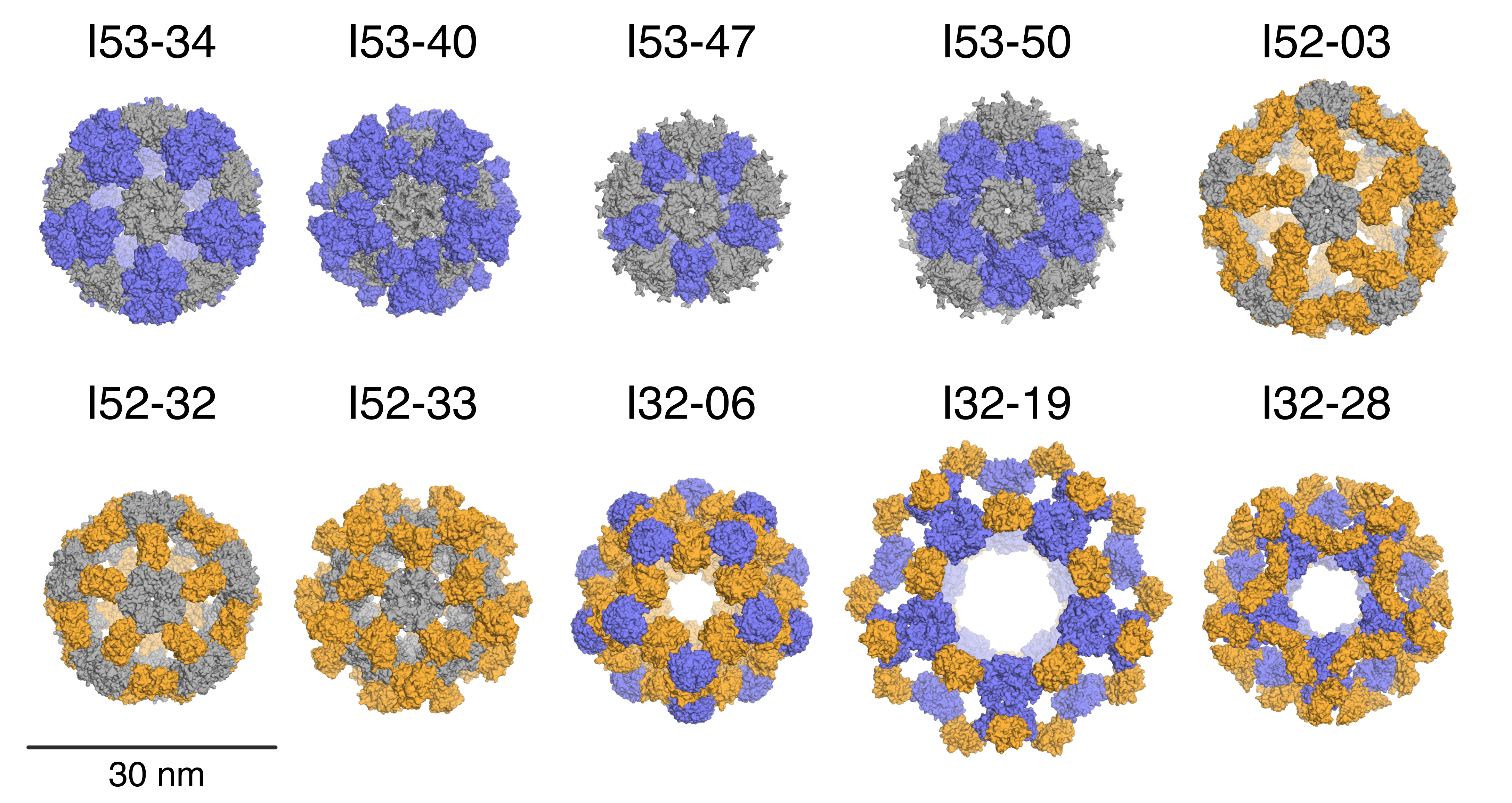
Designed Protein Containers Push Bioengineering Boundaries
Earlier this month, Baker lab researchers reported the computational design of a hyperstable 60-subunit protein icosahedron in Nature (Hsia et al); icosahedral protein structures are commonly observed in natural biological systems for packaging and transport (e.g. viral capsids). The described design was composed of 60 trimeric protein building blocks that self-assembled in a nanocage. In…
-
Foldit Turns 8!
Over the weekend, Foldit had its 8th birthday! In celebration, they will be tweeting (@Foldit) fun facts and infographics on their feed. Haven’t heard of the game or tried playing it yet? What better time than now! Click here to learn more and to join an ever-growing community that spans the world. Who knows, maybe…
-

David Baker wins a Leaders in Health Care Award, listed among ‘world’s most influential scientific minds’
We are proud to announce that last week, David was named winner of Seattle Business‘ 2016 Leaders in Health Care Awards for “Outstanding Achievement in Delivery of Digital Health.” The award was one of several given out, with categories ranging from “Lifetime Achievement” to “Outstanding Achievement: Health Care Delivery.” Although David was ill and unable…
-
September IPD News Roundup
RESEARCH IPD Translational Investigator, Dr. Ingrid Pultz, published a paper in JACS this month titled ‘Engineering of Kuma030: A Gliadin Peptidase That Rapidly Degrades Immunogenic Gliadin Peptides in Gastric Conditions‘. Using Rosetta to redesign the active site of the gliadin protease KumaMax – an enzyme computationally designed to break down gluten in the stomach – Dr. Pultz and…
-
August IPD News Roundup
RESEARCH Following the groundbreaking 2014 Nature paper describing the development of a computational method to design multi-component coassembling protein nanoparticles, comes a publication in Protein Science from Baker lab graduate student Jacob Bale and collaborators. Titled “Structure of a designed tetrahedral protein assembly variant engineered to have improved soluble expression“, the paper reports a variant of a previously low…
-
Institute for Protein Design Establishes Advisory Board
The Institute for Protein Design is pleased to announce its new advisory board! Follow the link to our news release for more information on our board members.
-
Translational Investigator awarded LSDF Matching Grant Award for Celiac Disease Therapy
Please make a tax deductible donation at this LINK. IPD Translational Investigator Dr. Ingrid Swanson Pultz was awarded a Matching Grant award of $250K from the Life Sciences Discovery Fund (LSDF) for her project ‘In vivo assessment of an oral therapeutic for celiac disease‘! We need to raise an additional $74K…
-
Targeting Ebola
The Foldit community to targets Ebola. Click here to learn more. Watch grad student Brian Koepnick and IPD Director David Baker talk about this work on this KOMO TV news segment. See the Seattle Times article here. Make a donation to help us fund our anti-Ebola effort.
-
Designer Proteins to Target Cancer Cells
What if scientists could design a completely new protein that is precision-tuned to bind and inhibit cancer-causing proteins in the body? Collaborating scientists at the UW Institute for Protein Design (IPD) and Molecular Engineering and Sciences Institute (MolES) have made this idea a reality with the designed protein BINDI. BINDI (BHRF1-INhibiting Design acting Intracellularly) is a completely novel protein, based…
-
Accurate Design of Co-Assembling Multi-Component Protein Nanomaterials
A new paper is out in the June 5 issue of Nature entitled Accurate design of co-assembling multi-component protein nanomaterials. Scientists at the Institute for Protein Design (IPD), in collaboration with researchers at UCLA and HHMI, have built upon their previous work constructing single-component protein nanocages and can now design and build self-assembling protein nanomaterials made up of…
-
May IPD News Roundup
May was a busy month at the IPD, with some new publications and exciting announcements! Learn more here.
-
The “Three Dreamer” Protein Design Partnership for Alzheimer’s Disease
The “Three Dreamers” are a group of Seattle-based philanthropists whose family members are suffering from Alzheimer’s disease (AD). The IPD has partnered with the Three Dreamers, the Foldit community and AD researchers at the UW to design new proteins targeting amyloid, thought to be the cause of AD. Learn more at this link.
-
Increasing Public Involvement in Structural Biology
Foldit is 5 years old. This publication entitled “Increasing public involvement in structural biology” chronicles the power of engaging the citizen science community on behalf of the computational challenge of protein folding. Learn more at this link.
-
Seattle Health Innovators Visit the IPD
The Seattle Health Innovators recently visited the Institute for Protein Design, and wrote a nice blog entitled “Crowdsourcing the design of new molecules to improve healthcare and the environment.” The article provides a nice look into the Institute for Protein Design. Learn more at this link.
-
Computational Design of a pH Sensitive Antibody Binder
Purification of antibody IgG from crude serum or culture medium is required for virtually all research, diagnostic, and therapeutic antibody applications. Researchers at the Institute for Protein Design (IPD) have used computational methods to design a new protein (called “Fc-Binder”) that is programed to bind to the constant portion of IgG (aka “Fc” region) at basic…
-
KumaMax: Winner of C4C Recognition as a Novel Oral Therapeutic for Celiac Disease
Dr. Ingrid Swanson Pultz, a Translational Investigator at the Institute for Protein Design won first prize at the UW Center for Commercialization 2013 Innovator Recognition Event, for KumaMax, an enzyme designed in the Baker lab to efficiently break down gluten within the acidic environment of the stomach, before it can reach the small intestine where intact gluten…
-
David Baker at the 2013 Gairdner Award Celebrations in Toronto
David Baker, Head of the Institute for Protein Design was recently in Toronto, Canada in late October to deliver a lecture on protein design as part of Gairdner Award celebrations. This was written up in the Globe and Mail. Learn more at this link.
-
GIVING IN ACTION: Making Dreams Come True at the IPD
Thank you to our supporters. GIVING IN ACTION: Making Dreams Come True. Barton Family Foundation, Life Sciences Discovery Fund, Bruce and Jeannie Nordstrom, and Three Dreamers all supporting the IPD. Thank you all for your help in supporting our efforts in protein design.
-
Follow the Institute for Protein Design on Facebook and Twitter
Visit us on Facebook and follow us on Twitter @UWproteindesign
-
Professor David Baker Provides an In Depth Discussion on Protein Design
Prof. David Baker, Head of the UW Institute for Protein Design, HHMI Investigator provides an in depth discussion on the design of protein structures, functions and assemblies. Click here to watch the video.
-
High-Resolution Comparative Modeling with RosettaCM
Researchers in the Baker group describe an improved method for comparative modeling, RosettaCM, which optimizes a physically realistic all-atom energy function over the conformational space defined by homologous structures. Learn more at this link.
-
Computational Design Of A Protein That Binds Polar Surfaces
In a Journal of Molecular Biology publication entitled Computational design of a protein-based enzyme inhibitor, Dr. Erik Procko and collaborators describe the computational design of a protein-based enzyme inhibitor that binds the polar active site of hen egg lysosome (HEL). Computational design of a protein that binds polar surfaces has not been previously accomplished. Learn…
-
Life Sciences Discovery Fund Awards $1.4M to the Institute for Protein Design
The Life Sciences Discovery Fund (LSDF) today announced its latest round of Opportunity Grants, and awarded $1.4 M to the University of Washington (UW) to “Launch of the Institute for Protein Design for Creating New Therapeutics, Vaccines and Diagnostics.” This LSDF Opportunity Grant Award will enable the IPD Translational Investigators to improve upon protein design discoveries so that they…
-
IPD Researchers Publish New Protocols for Preparing Protein Scaffold Libraries for Functional Site Design
IPD researchers in the Baker group have published new computational protocols for preparing protein scaffold libraries for functional site design. Their paper entitled “A Pareto-optimal refinement method for protein design scaffolds“ improves the search for amino acids with the lowest energy subject to a set of constraints specifying function. Learn more at this link.
-
Centenary Award and Frederick Gowland Hopkins Memorial Lecture
Dr. David Baker, Director of the IPD delivered the Centenary Award and Frederick Gowland Hopkins Memorial Lecture at at the MRC Laboratory of Molecular Biology, Cambridge, UK, on December, 13, 2012. Baker’s lecture entitled “Protein folding, structure prediction and design” can be read at this published link. See: Baker, D. (2014). Protein folding, structure prediction and design.. Biochemical Society…
-
Proteins Made to Order. Researchers at the IPD Design Proteins from Scratch with Predictable Structures
A team from David Baker’s laboratory at the University of Washington in Seattle have described a set of “rules” for the design of proteins from scratch, and have demonstrated the successful design of five new proteins that fold reliably into predicted conformations. Their work was published Nature. Learn more at this link.
-
Computer Designed Proteins Programmed to Disarm a Variety of Flu Viruses
As reported in Nature Biotechnology, David Baker and scientists at the IPD published exciting new methods to improve the potency and breadth of computer-designed protein inhibitors of influenza. Learn more at this link.
-
Computational Design of Self-Assembling Protein Nanomaterials with Atomic Level Accuracy
IPD researchers in the Baker group have published in Science a paper entitled “Computational design of self-assembling protein nanomaterials with atomic level accuracy.” They describe a general computational method for designing proteins that self-assemble to a desired symmetric architecture. Protein building blocks are docked together symmetrically to identify complementary packing arrangements, and low-energy protein-protein interfaces are then designed…
-
UW establishes the Institute for Protein Design
Hello, world.
